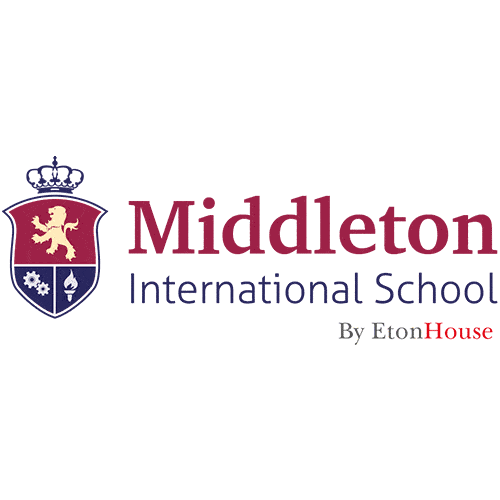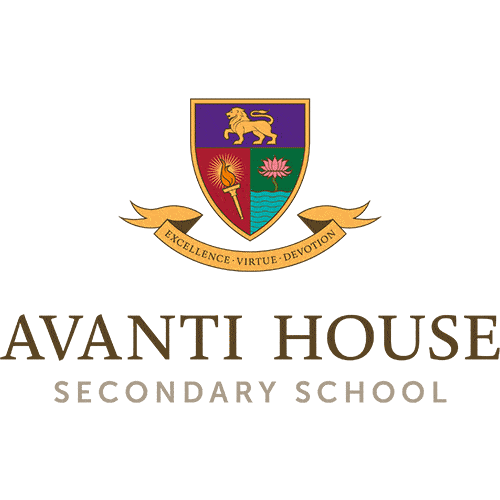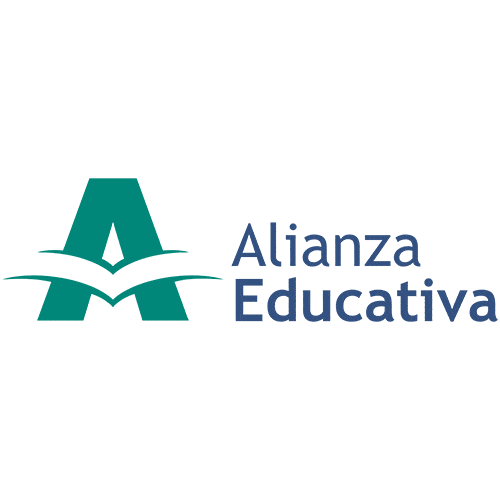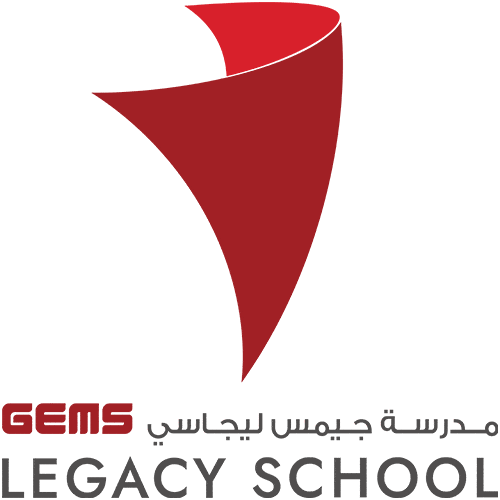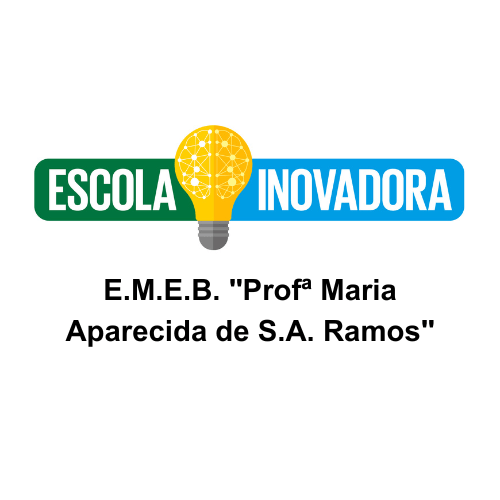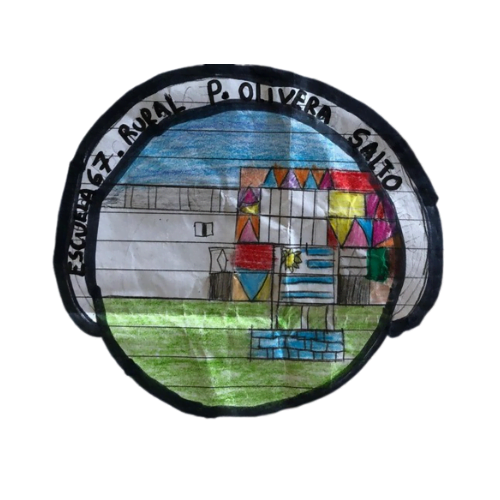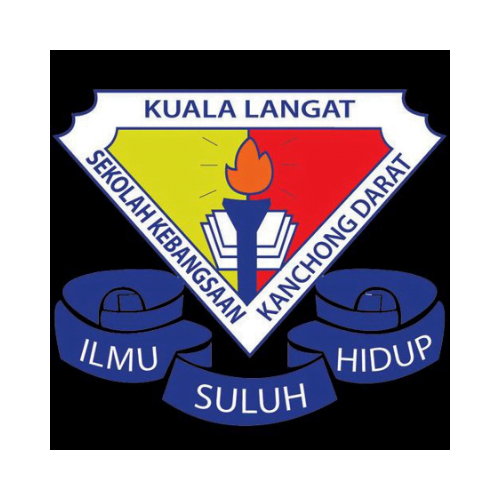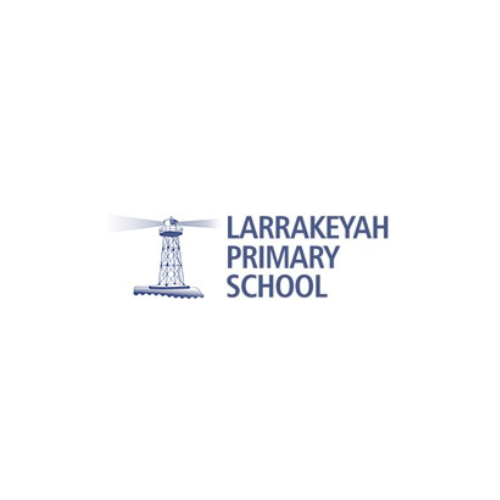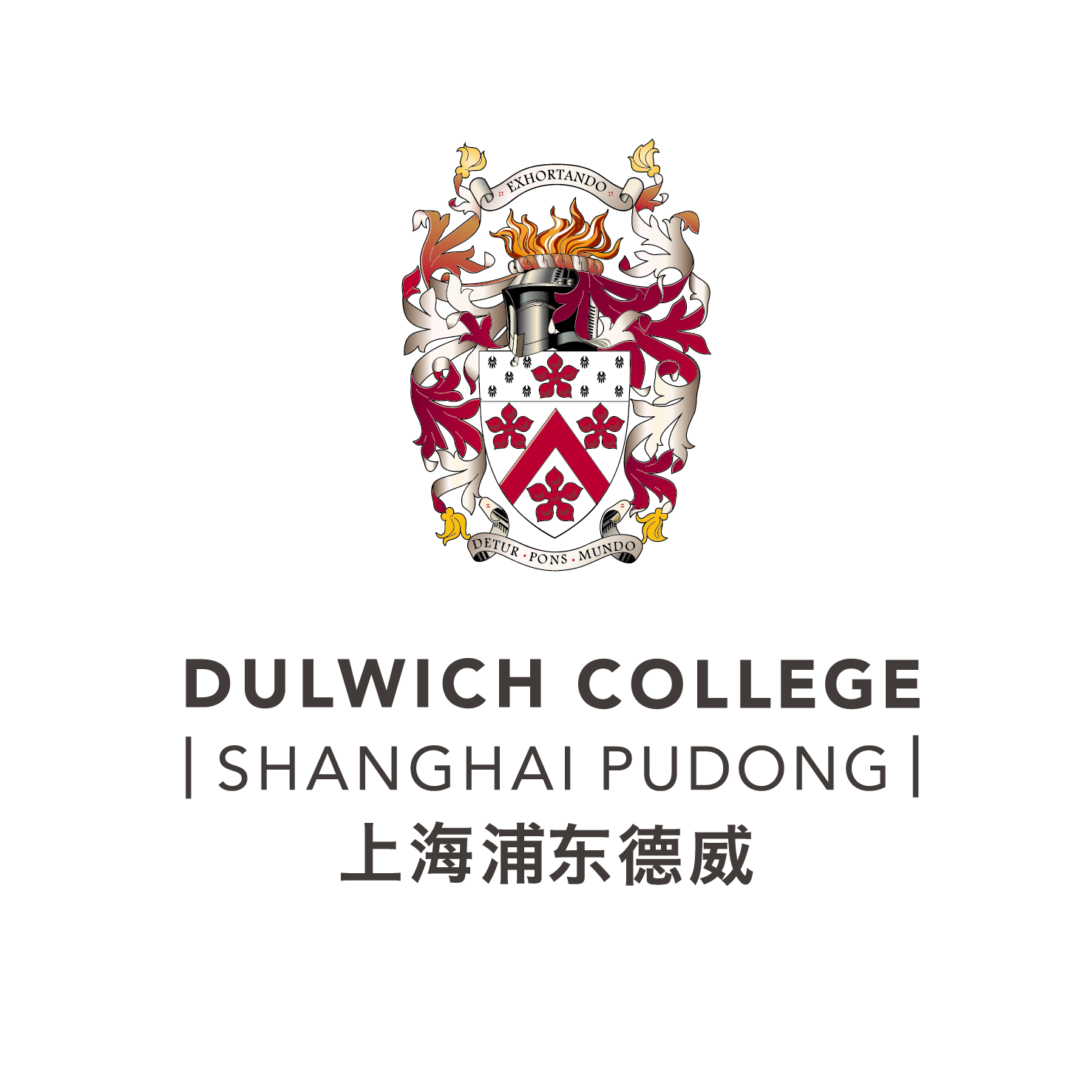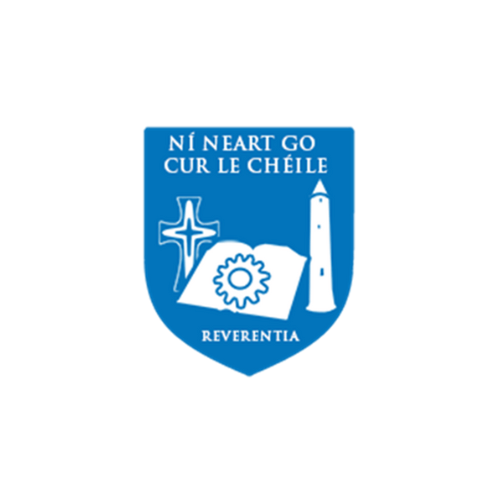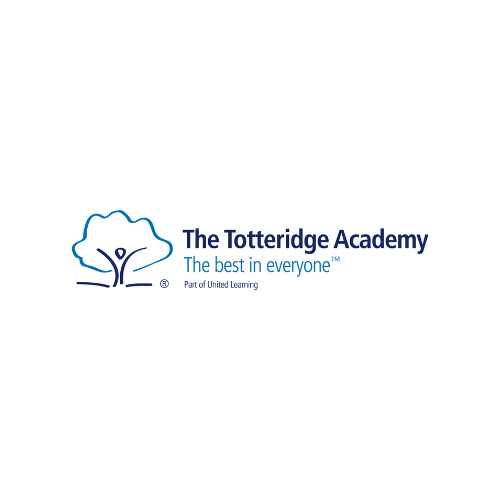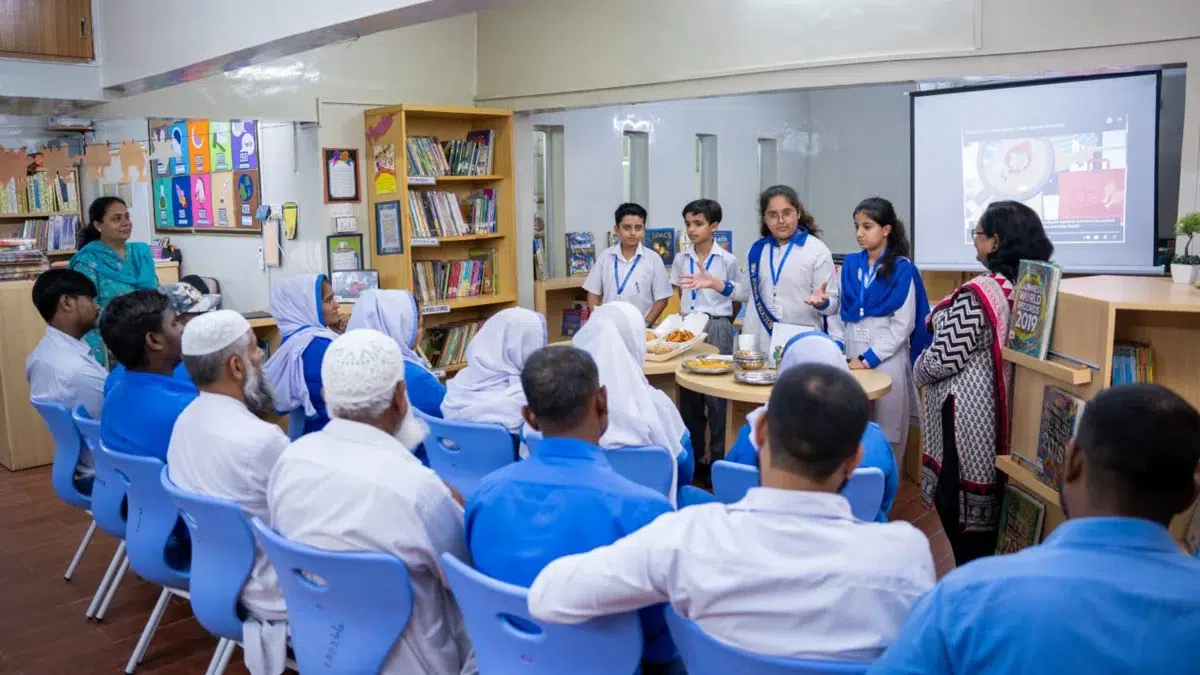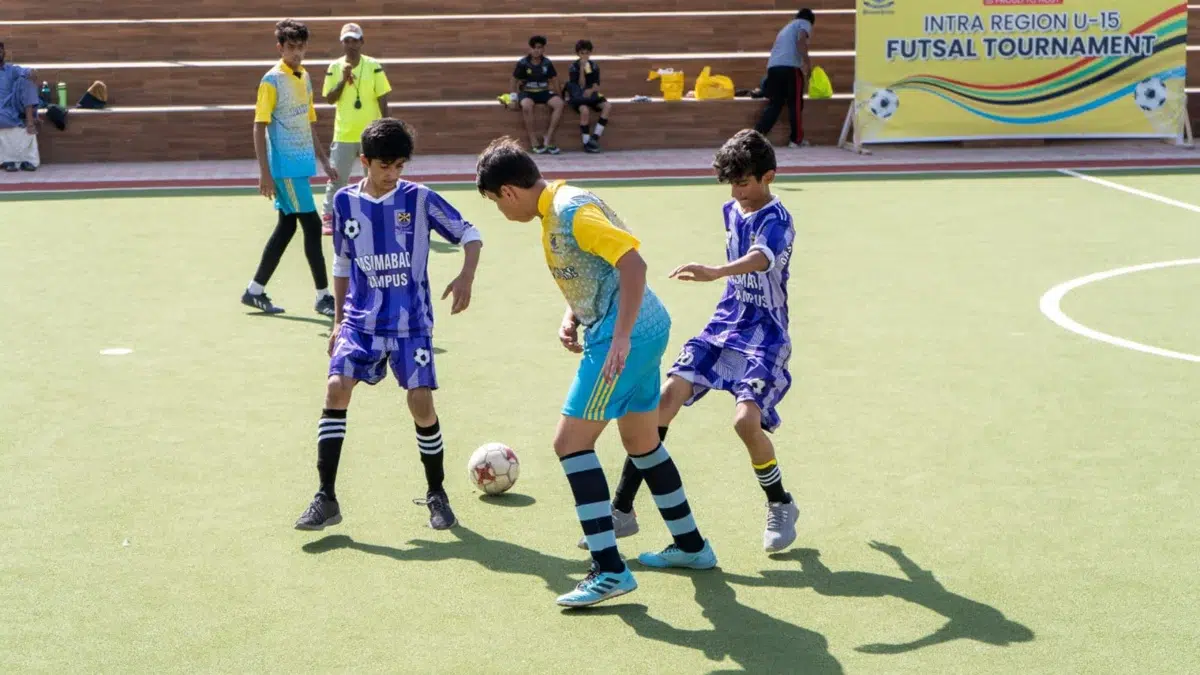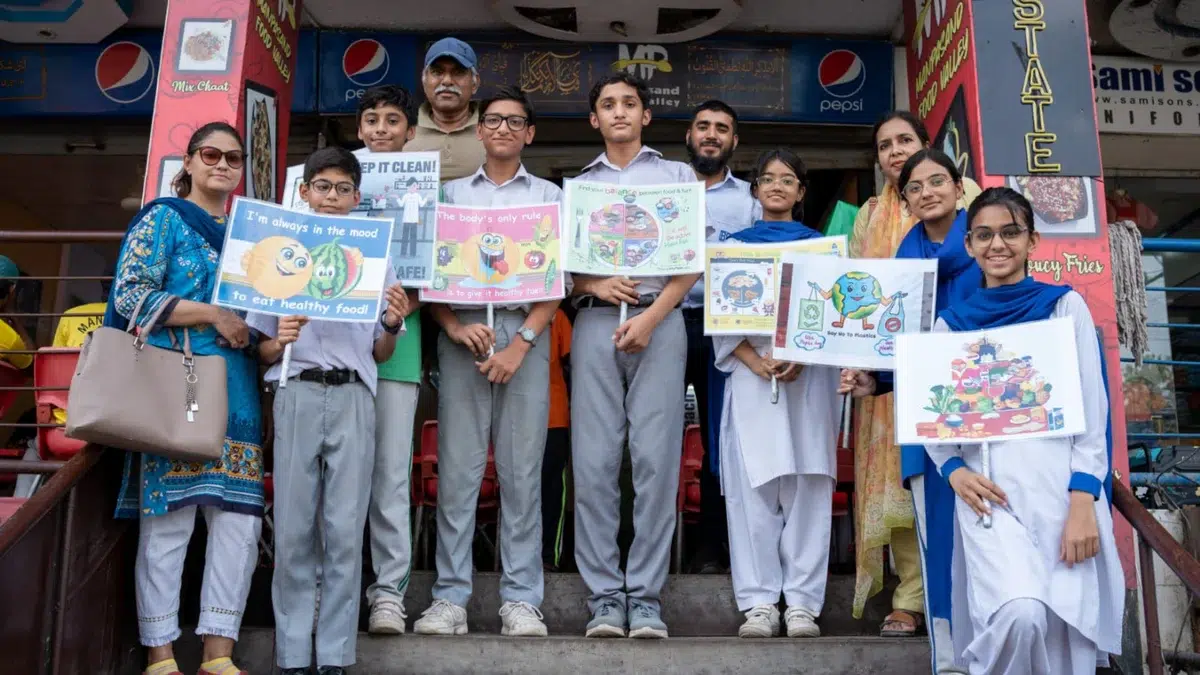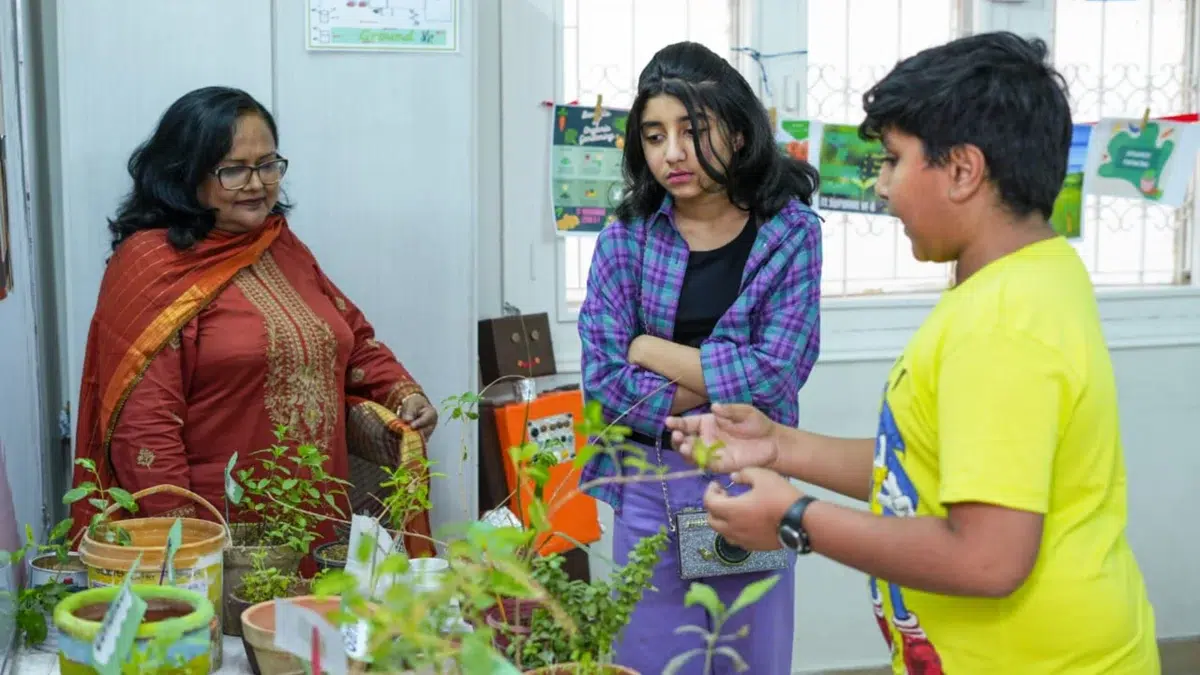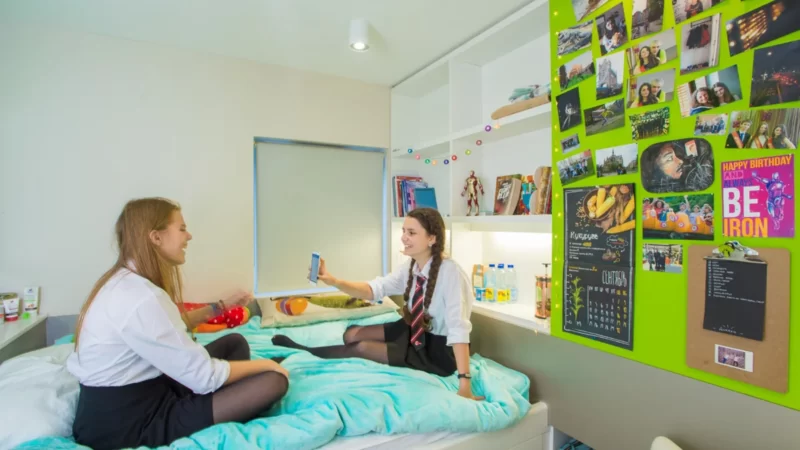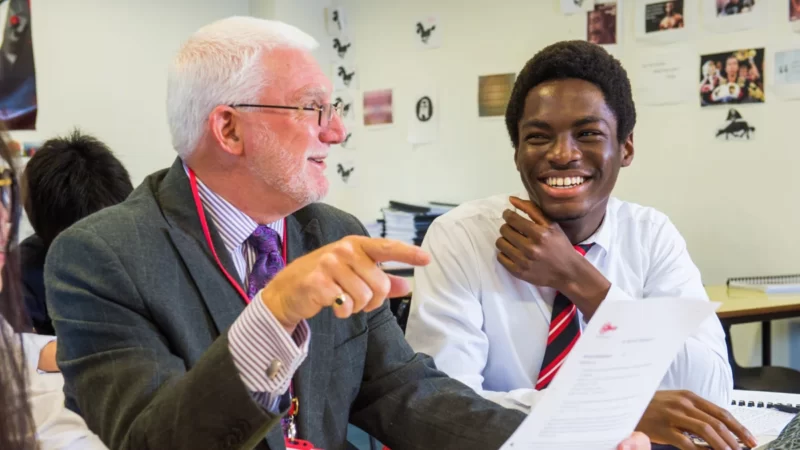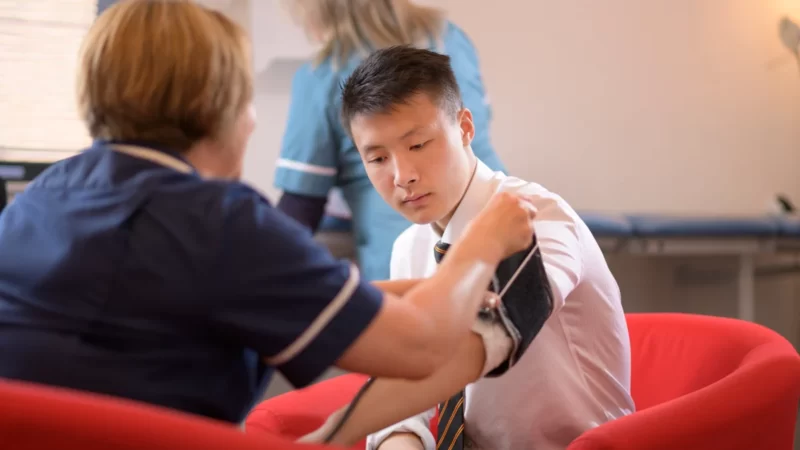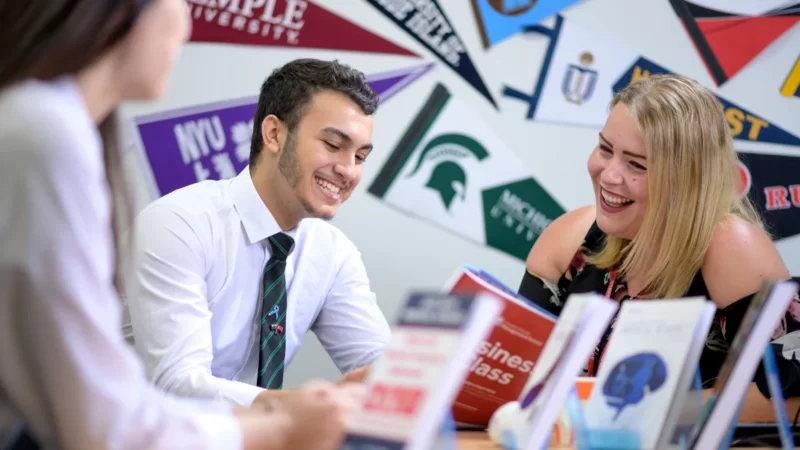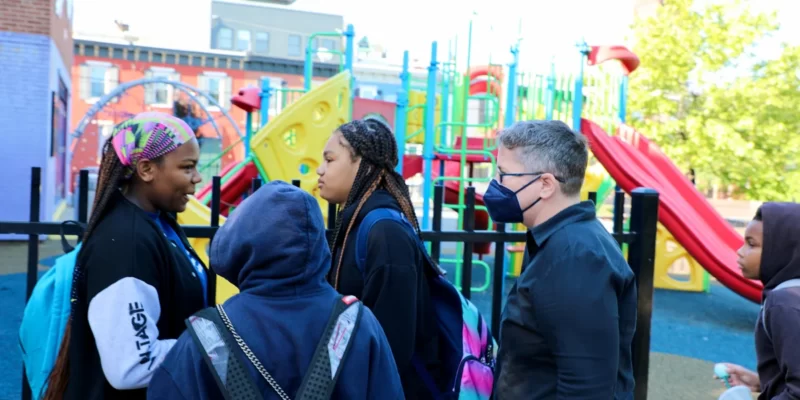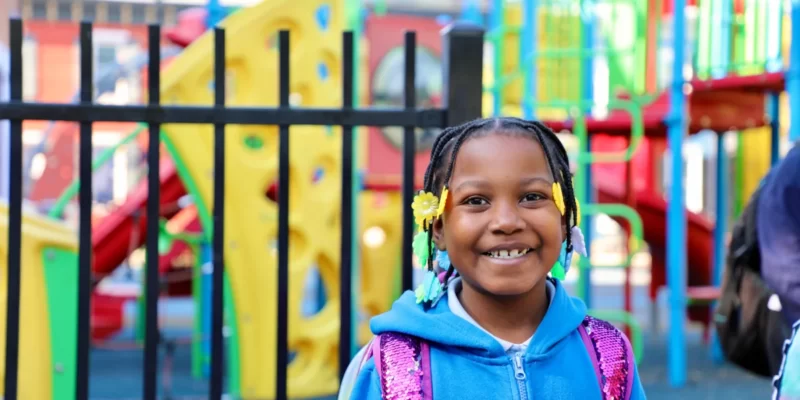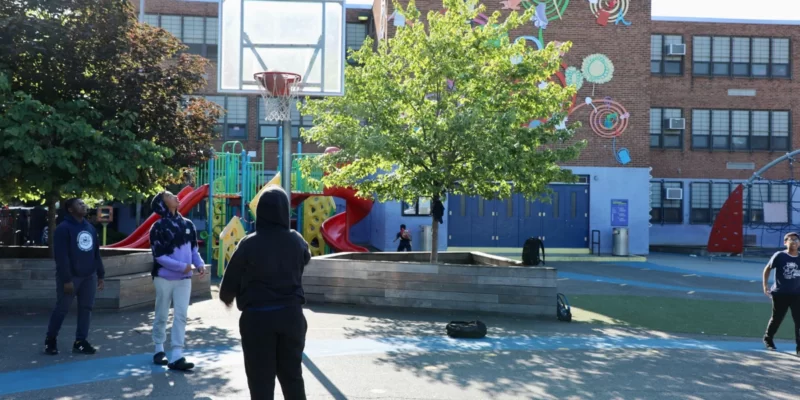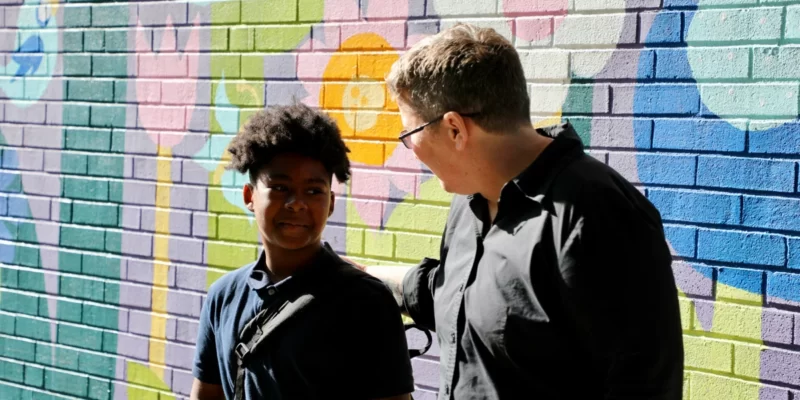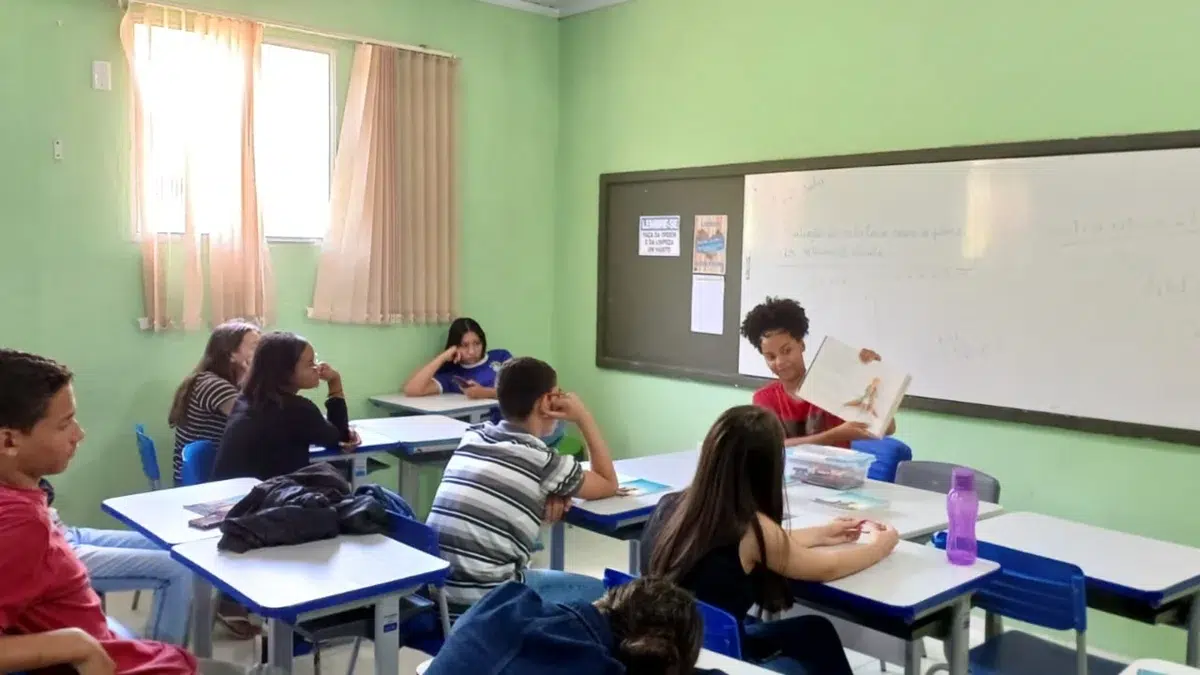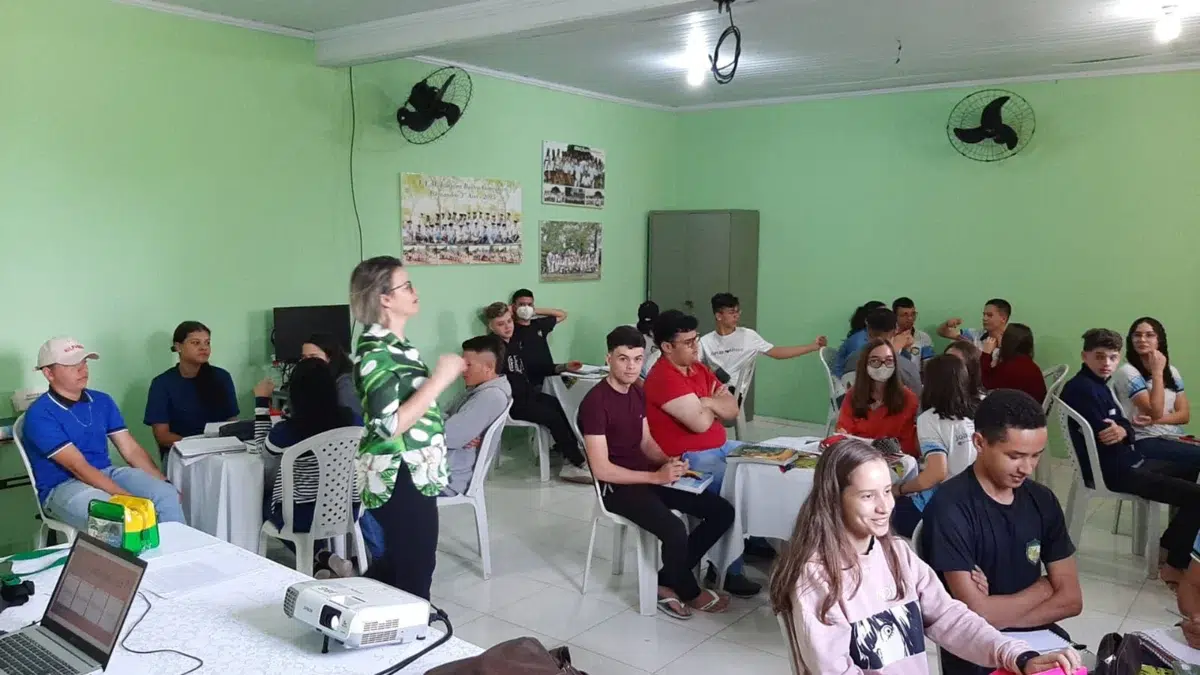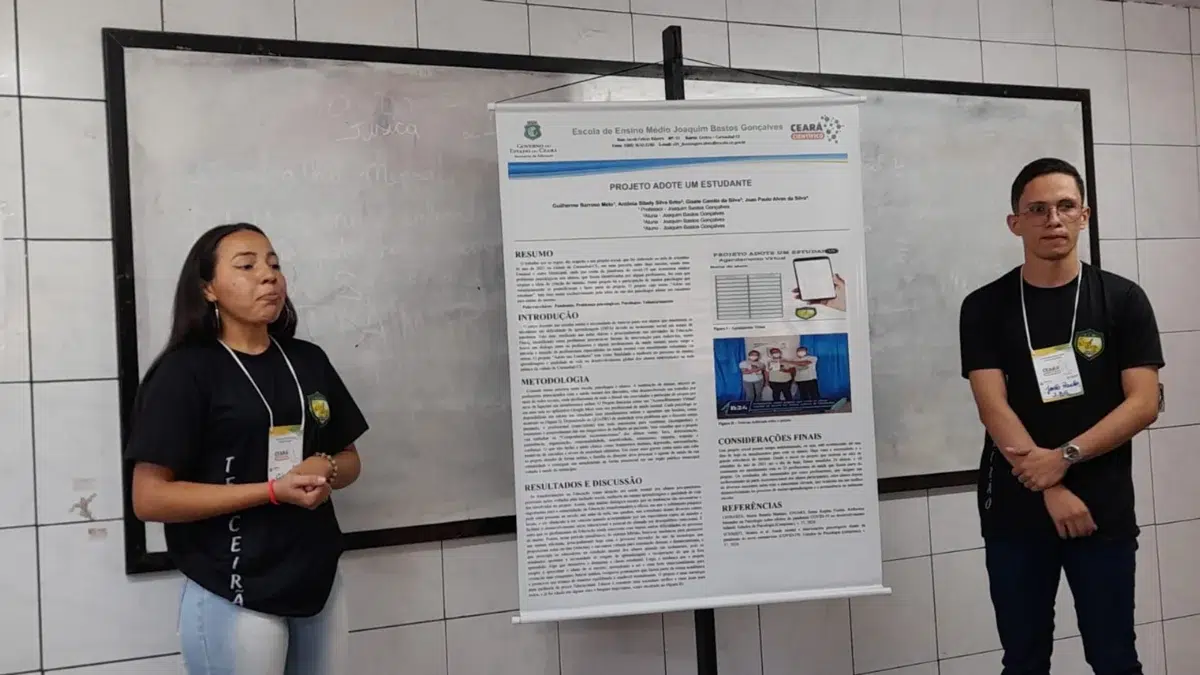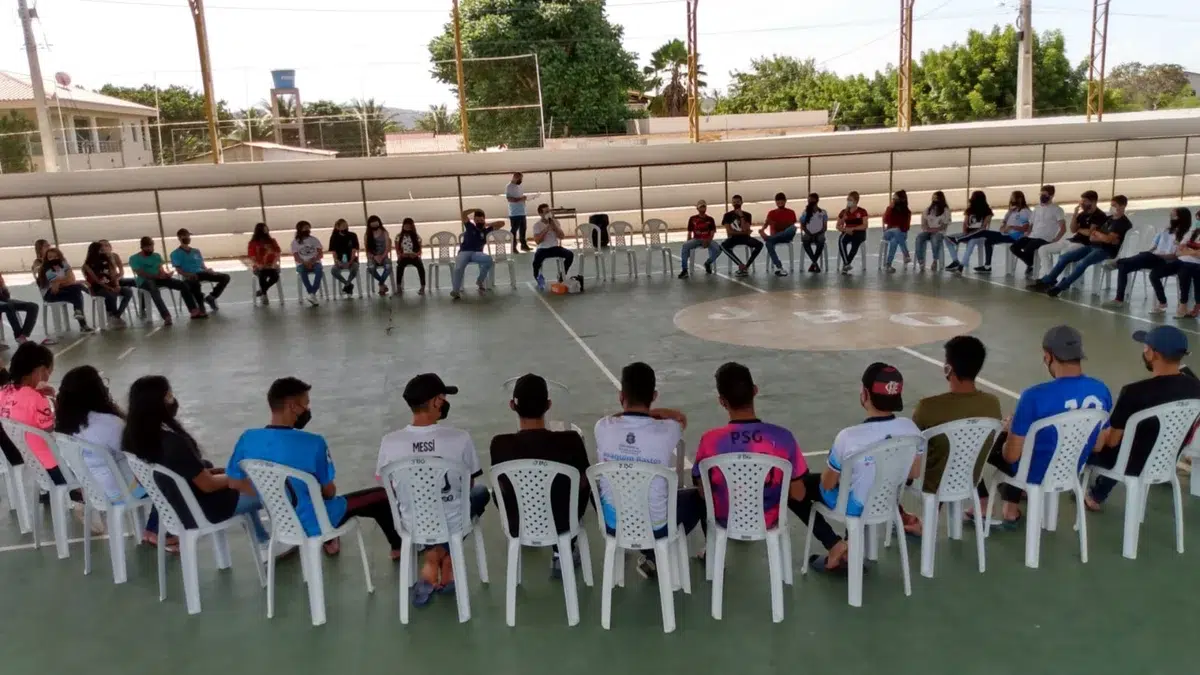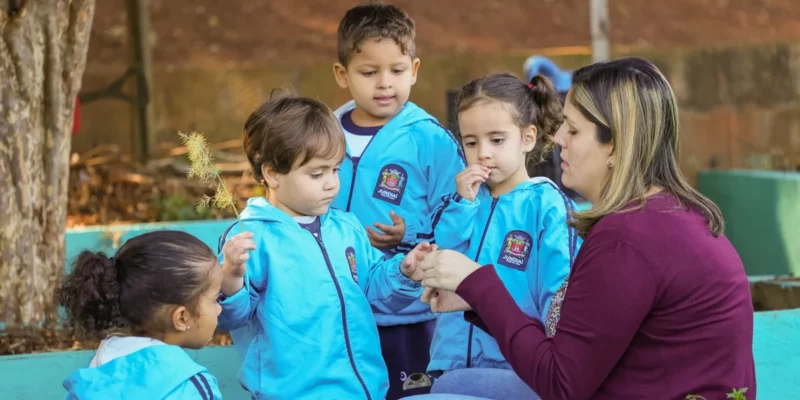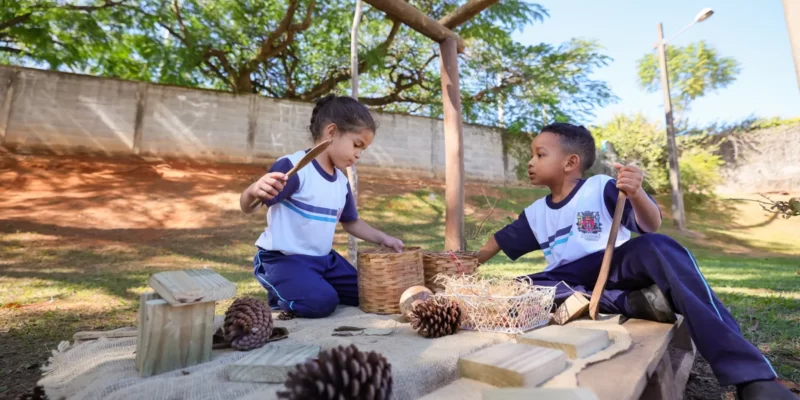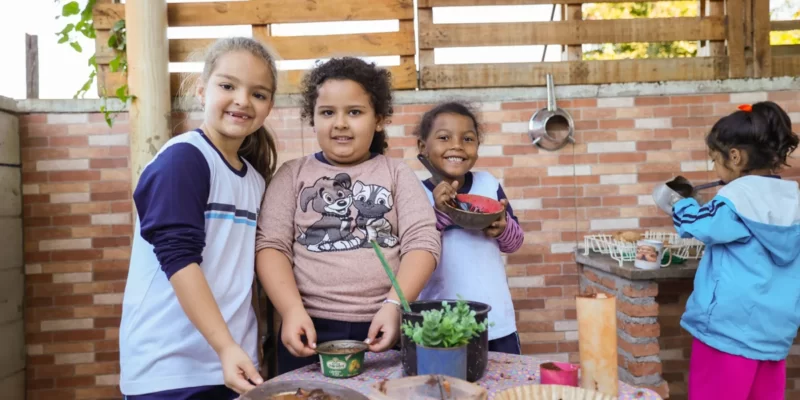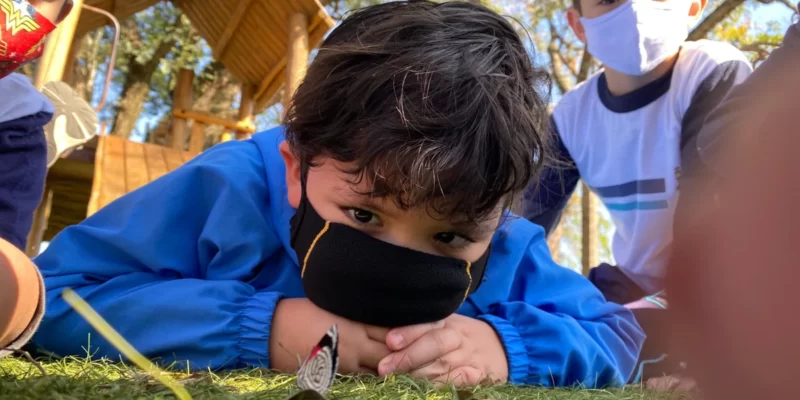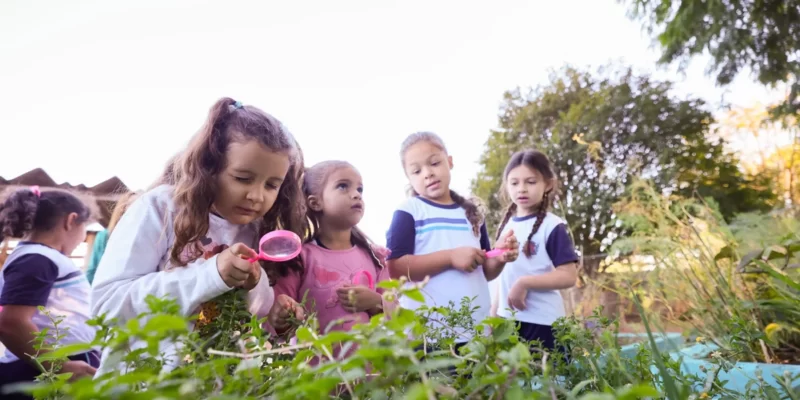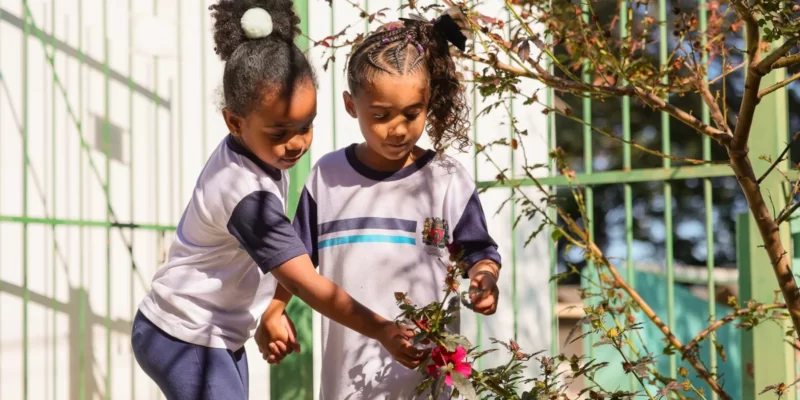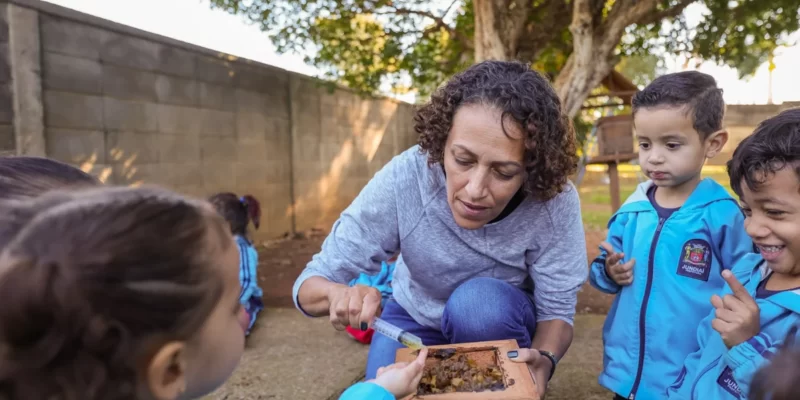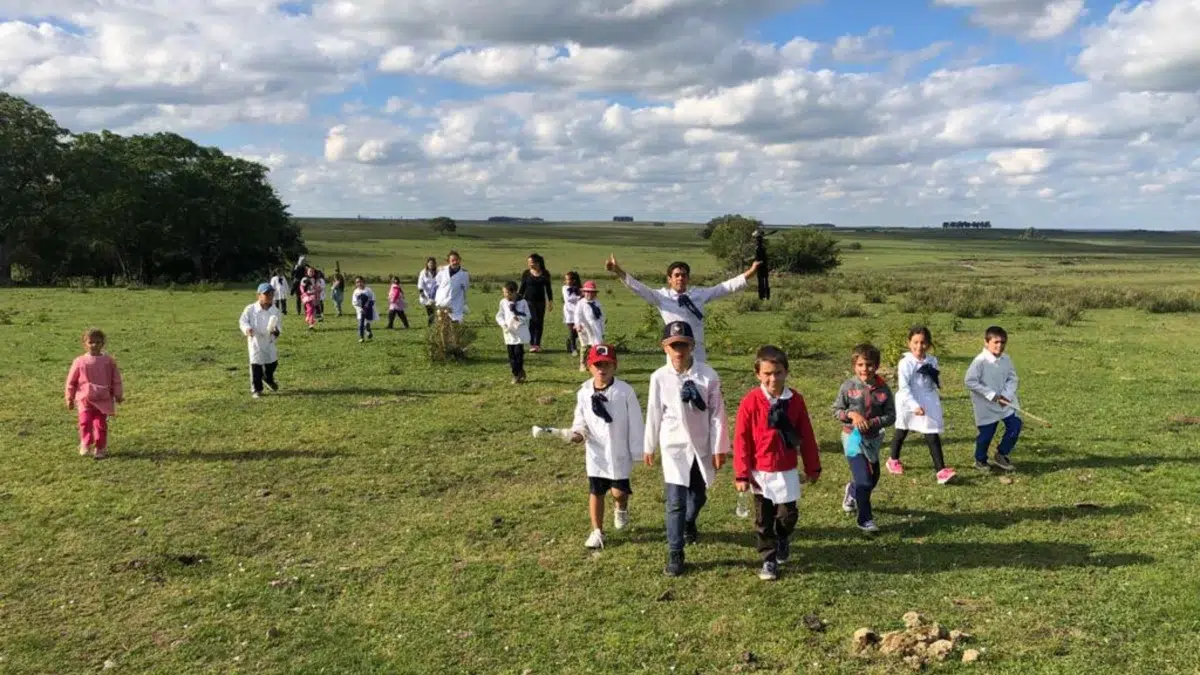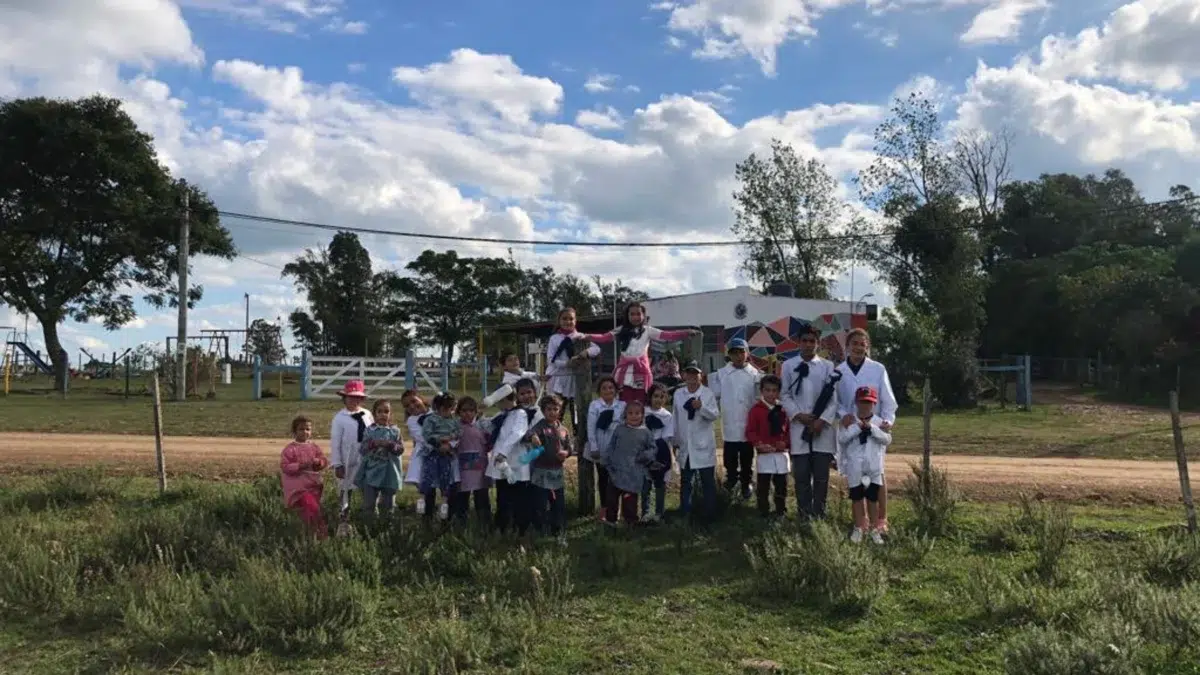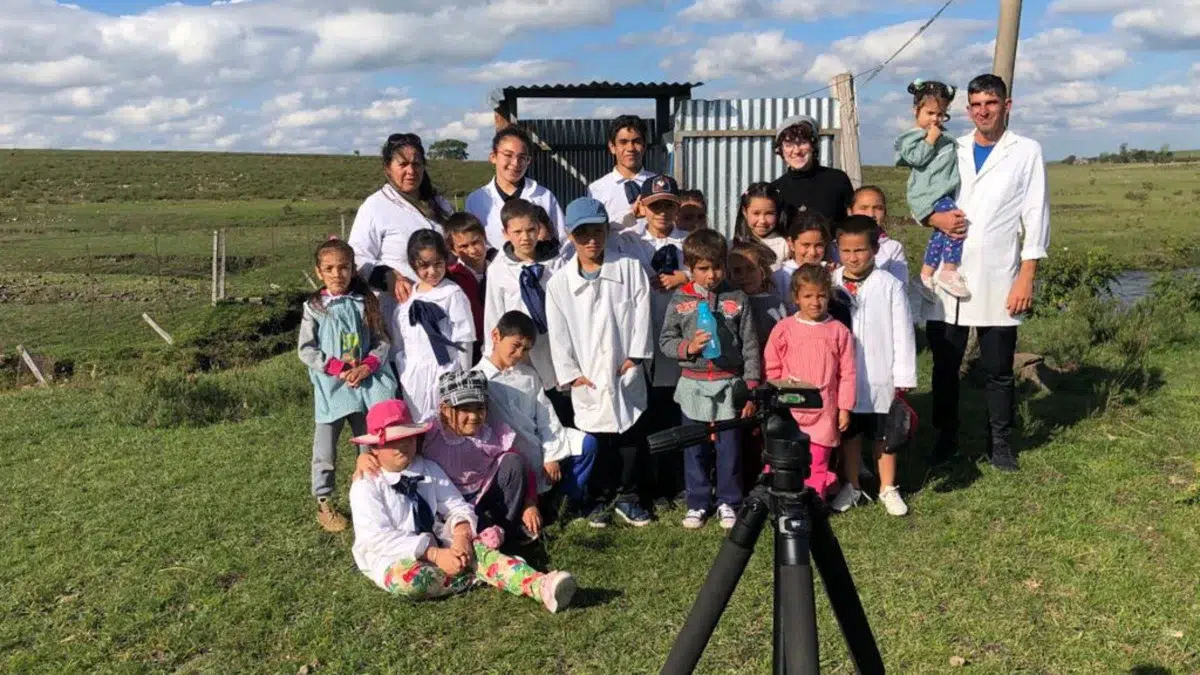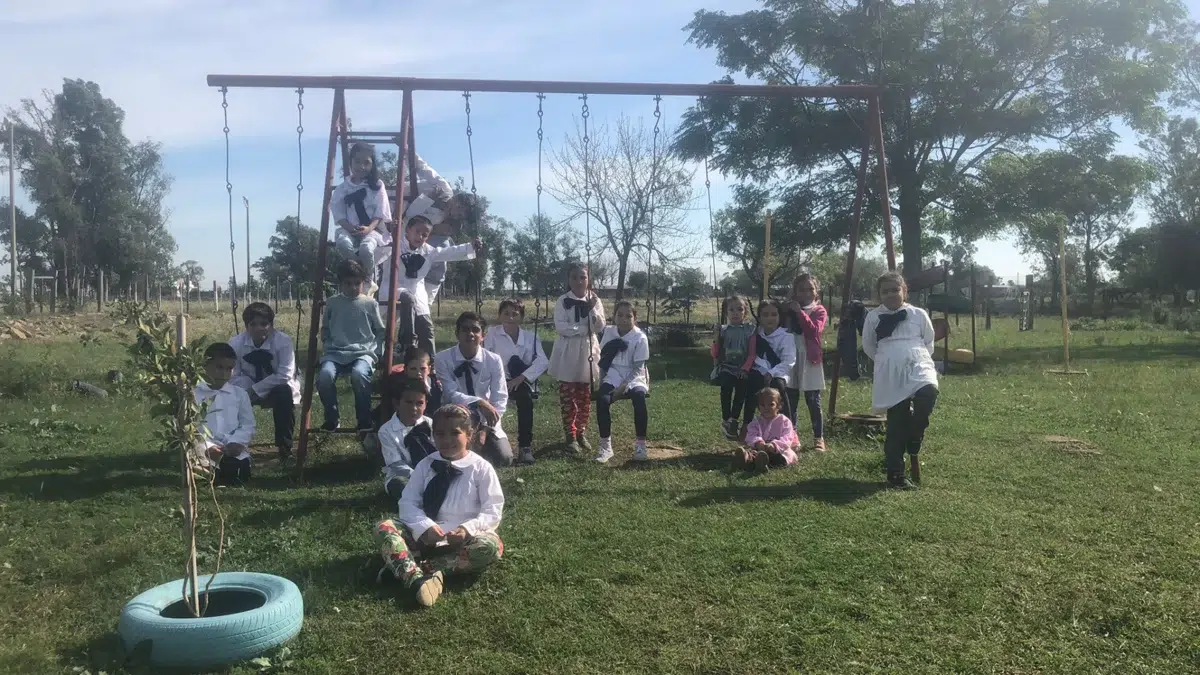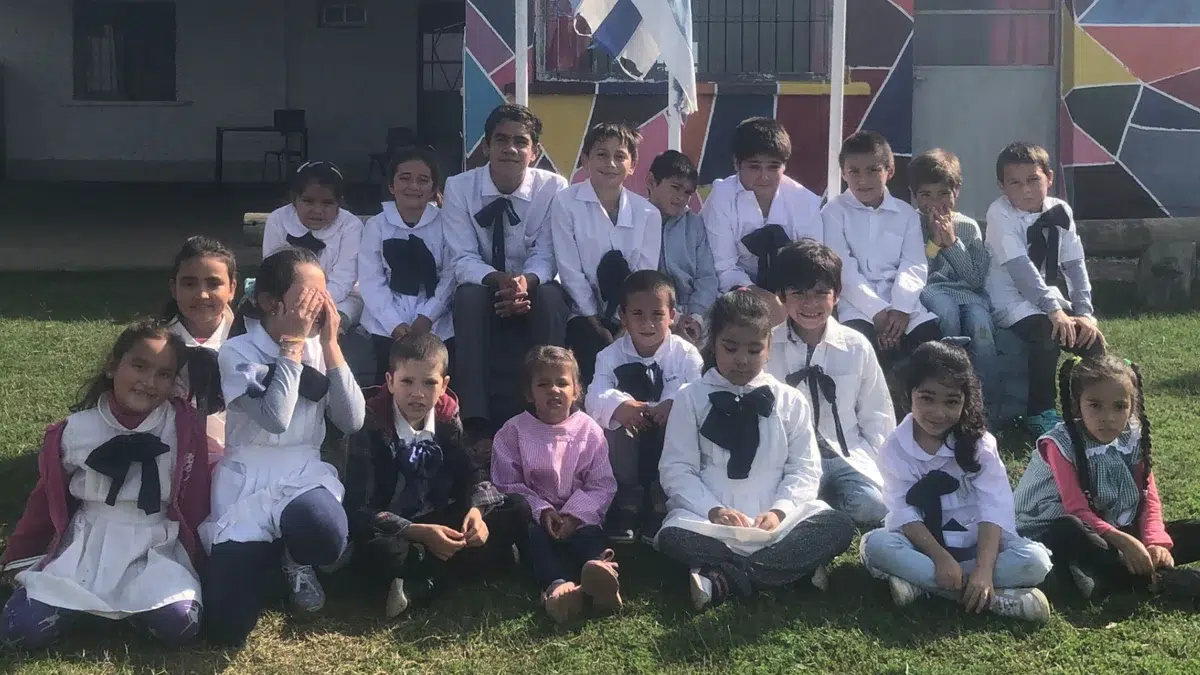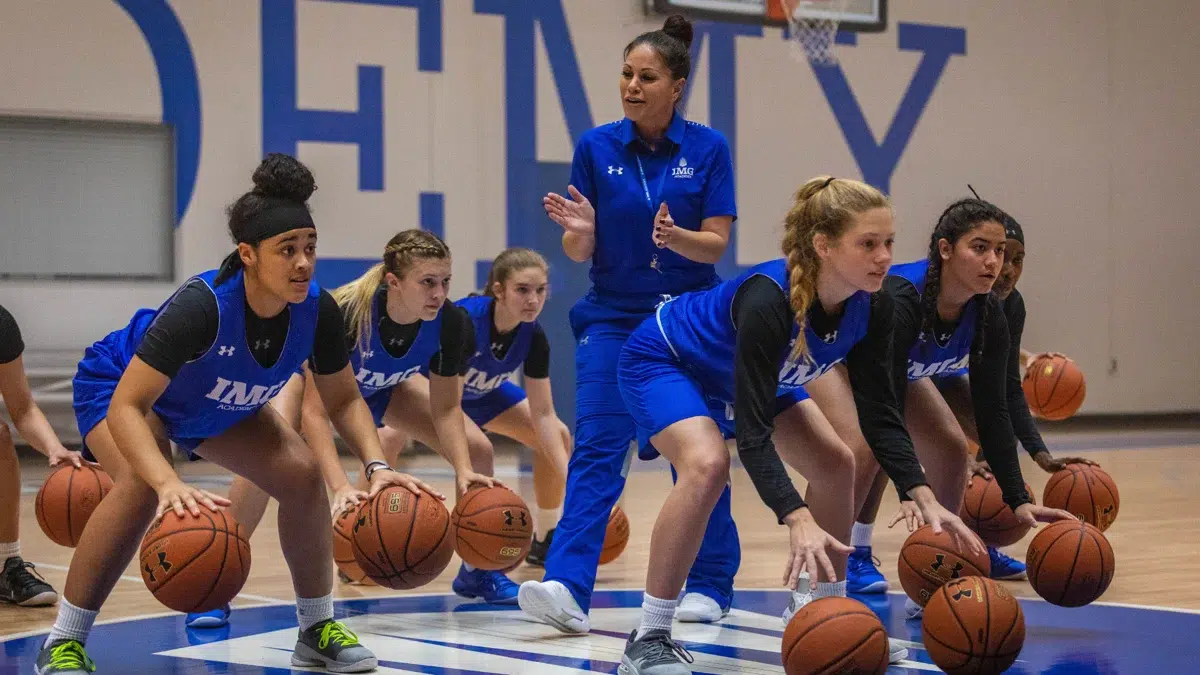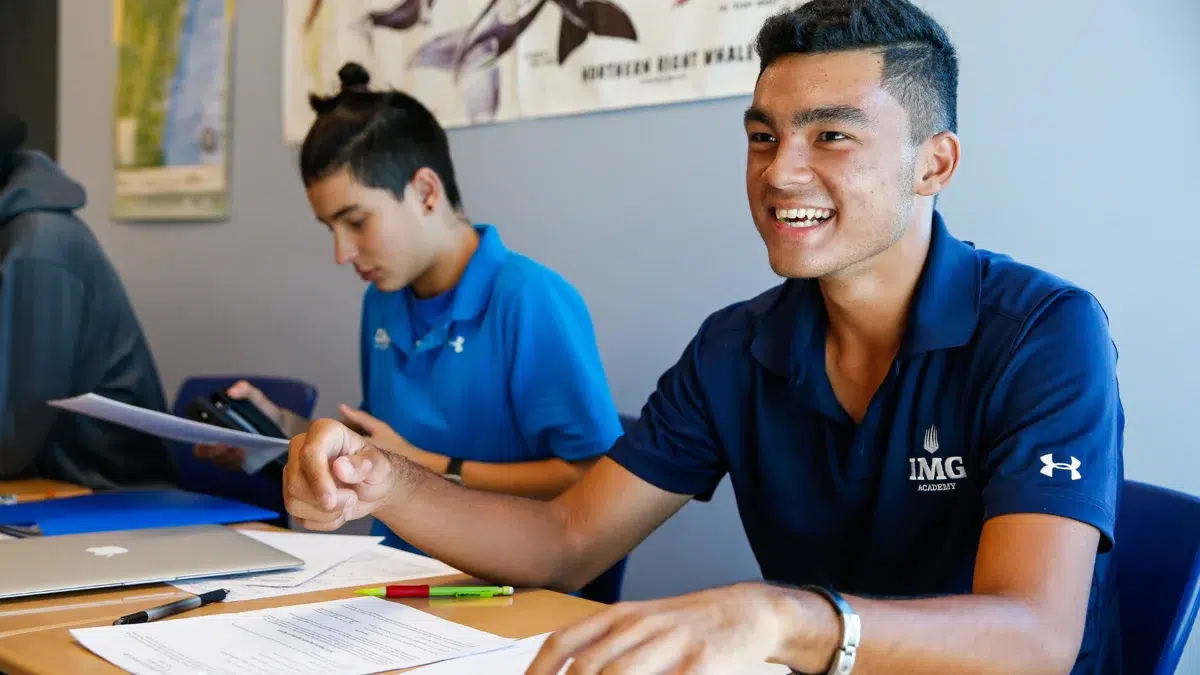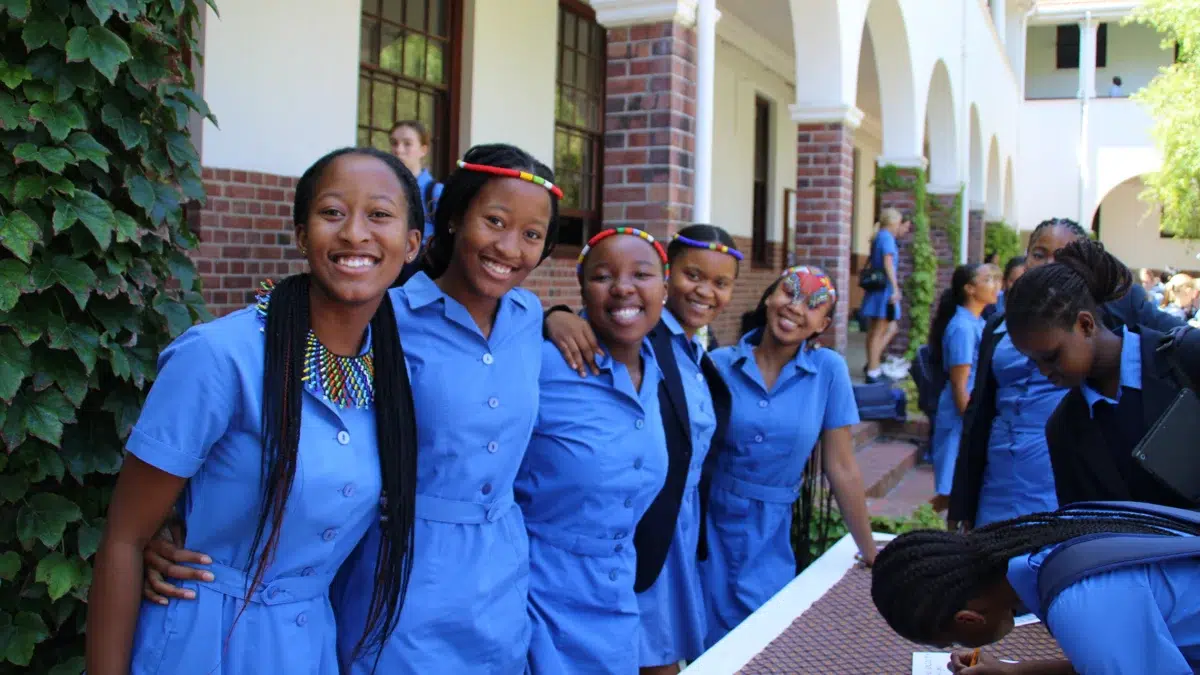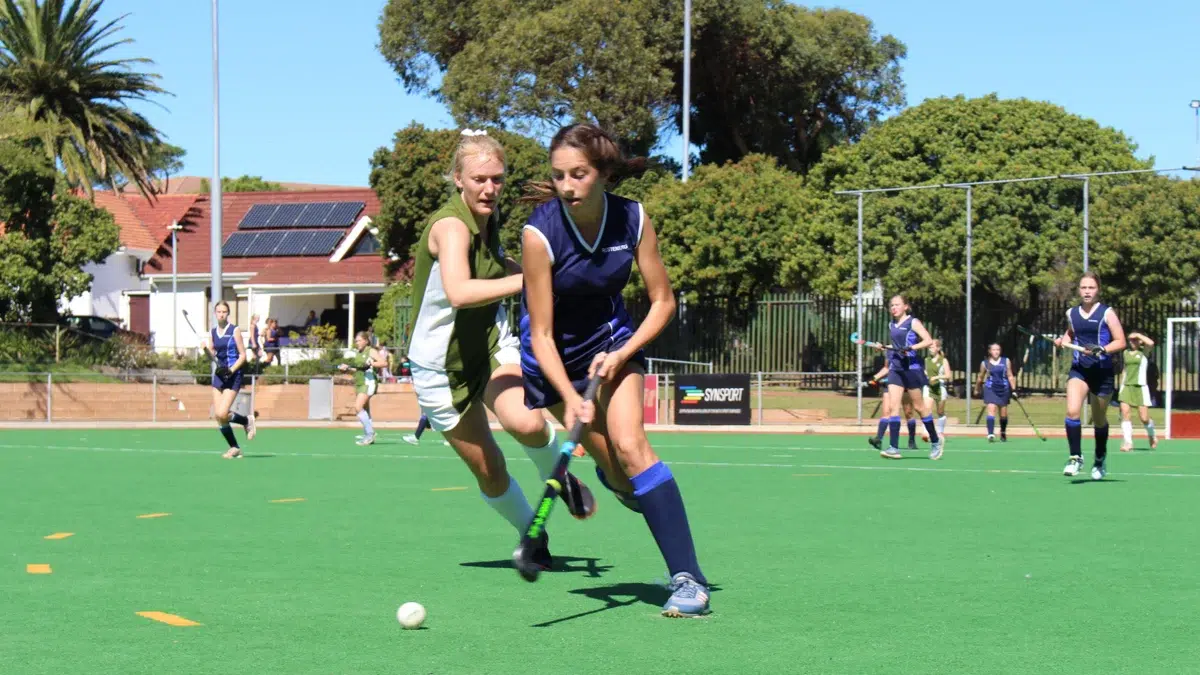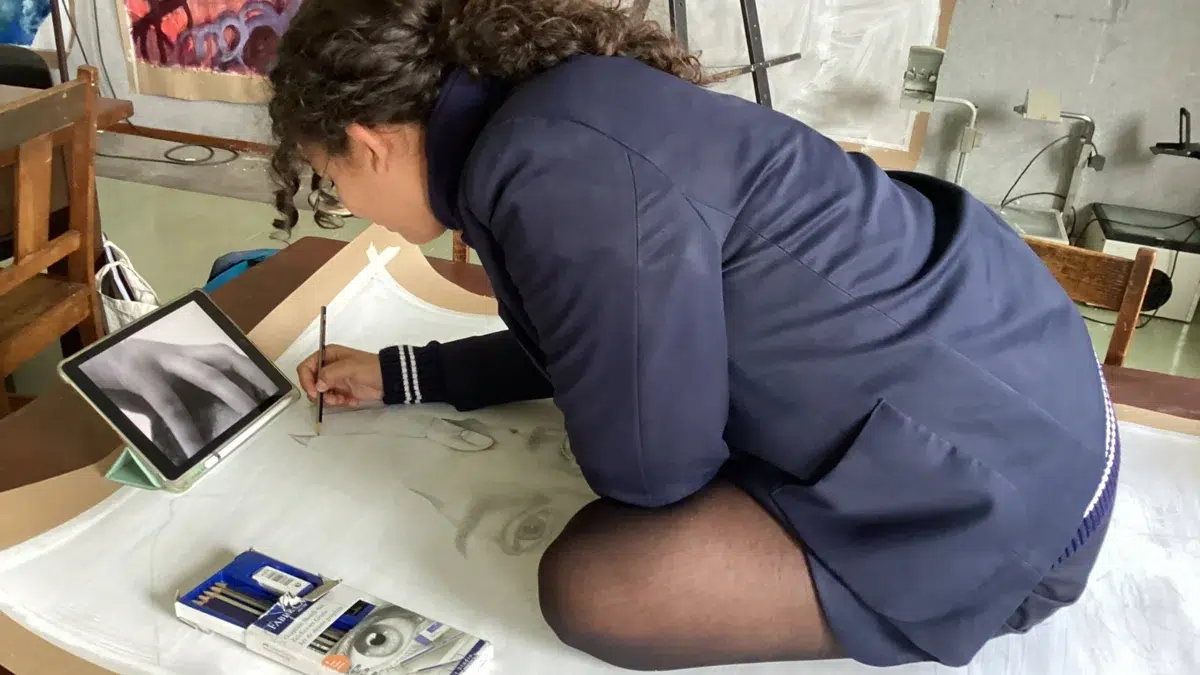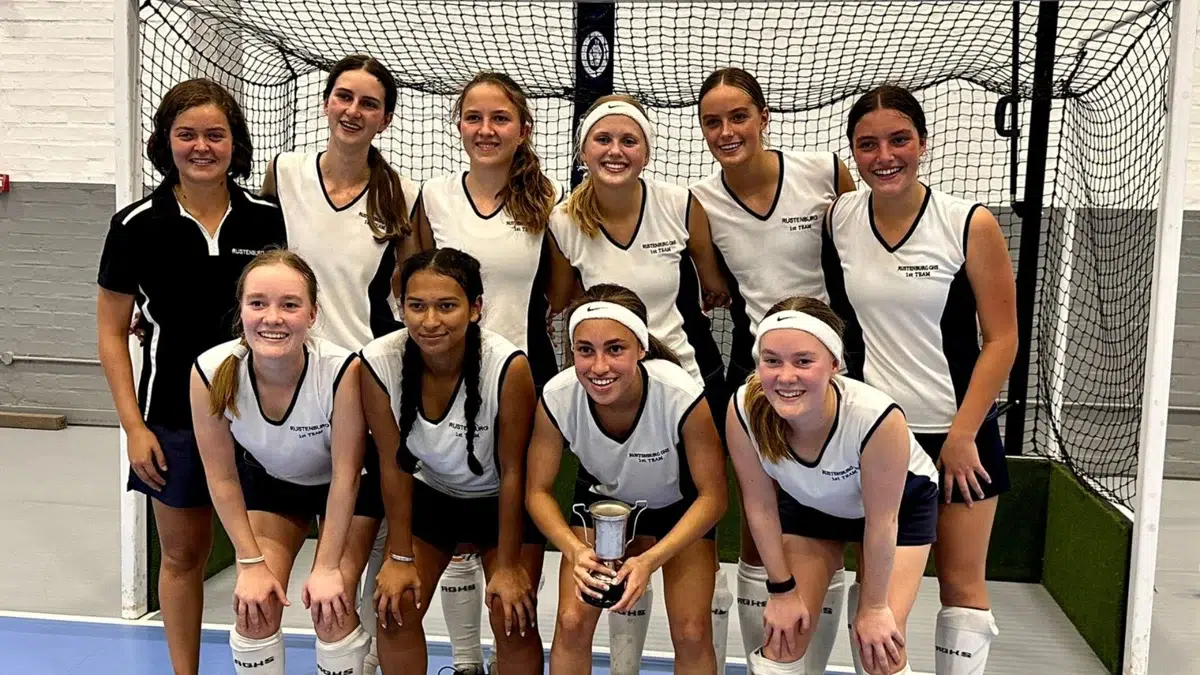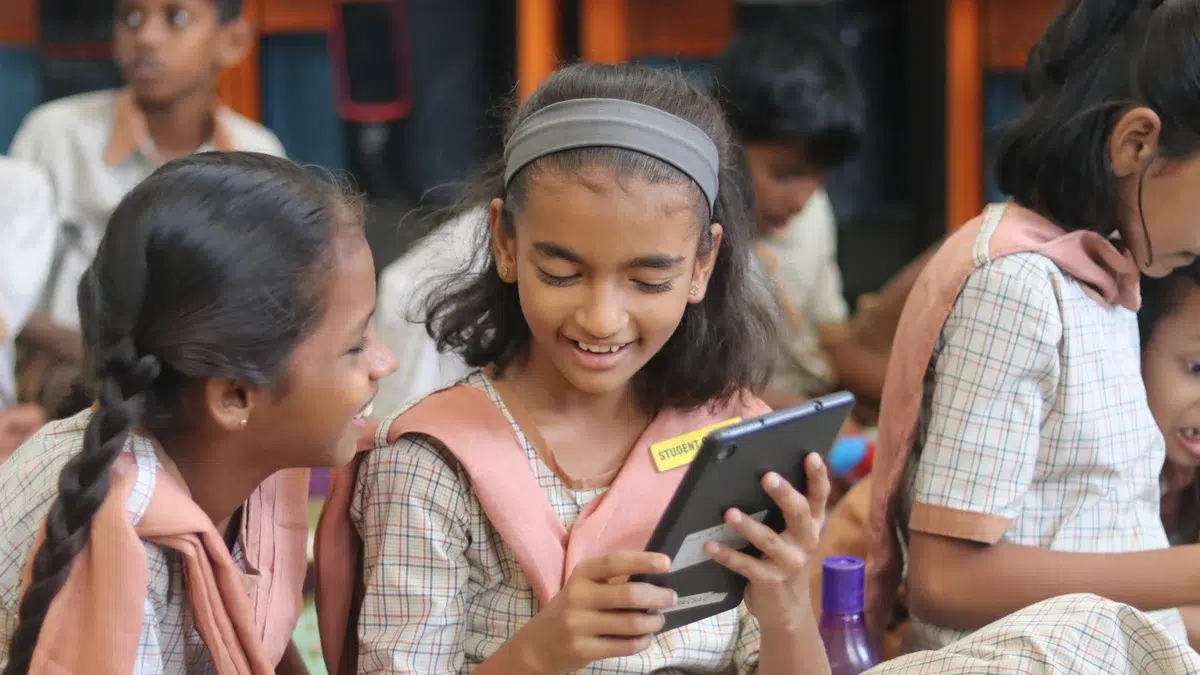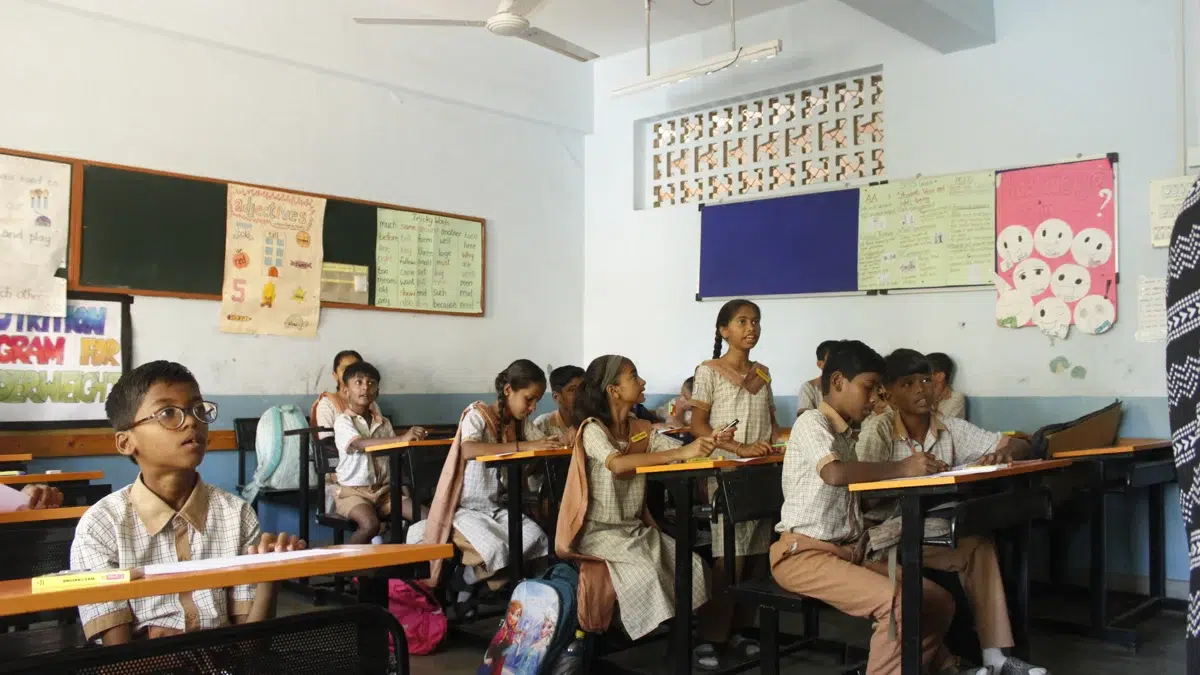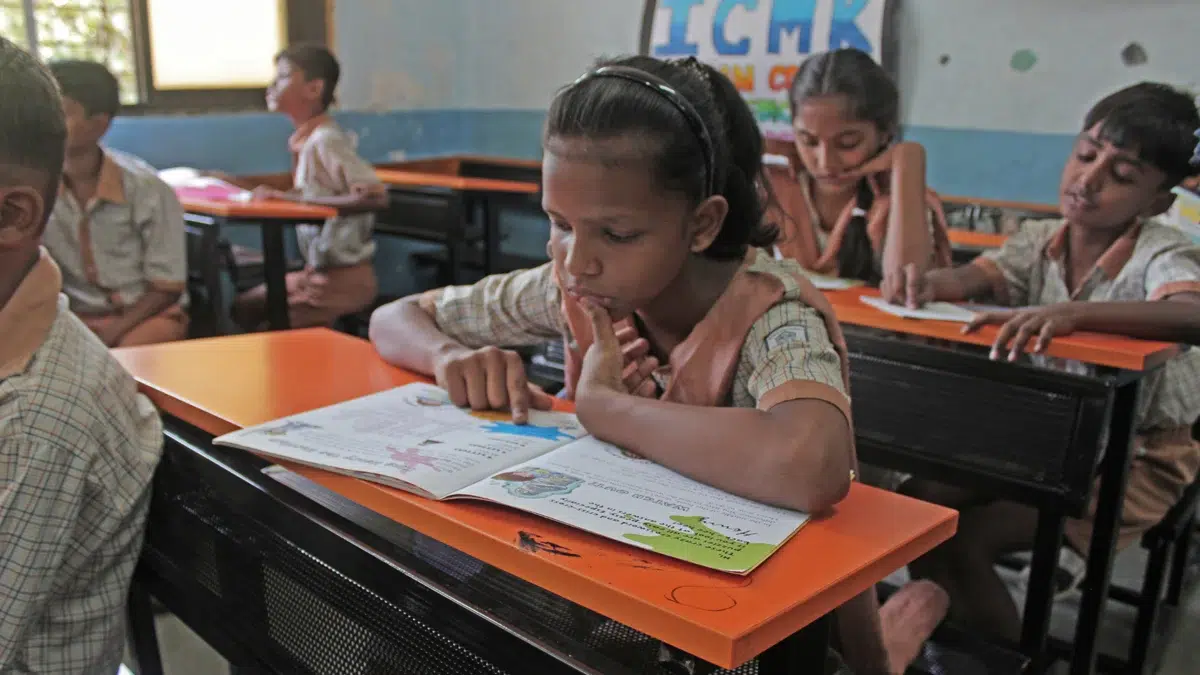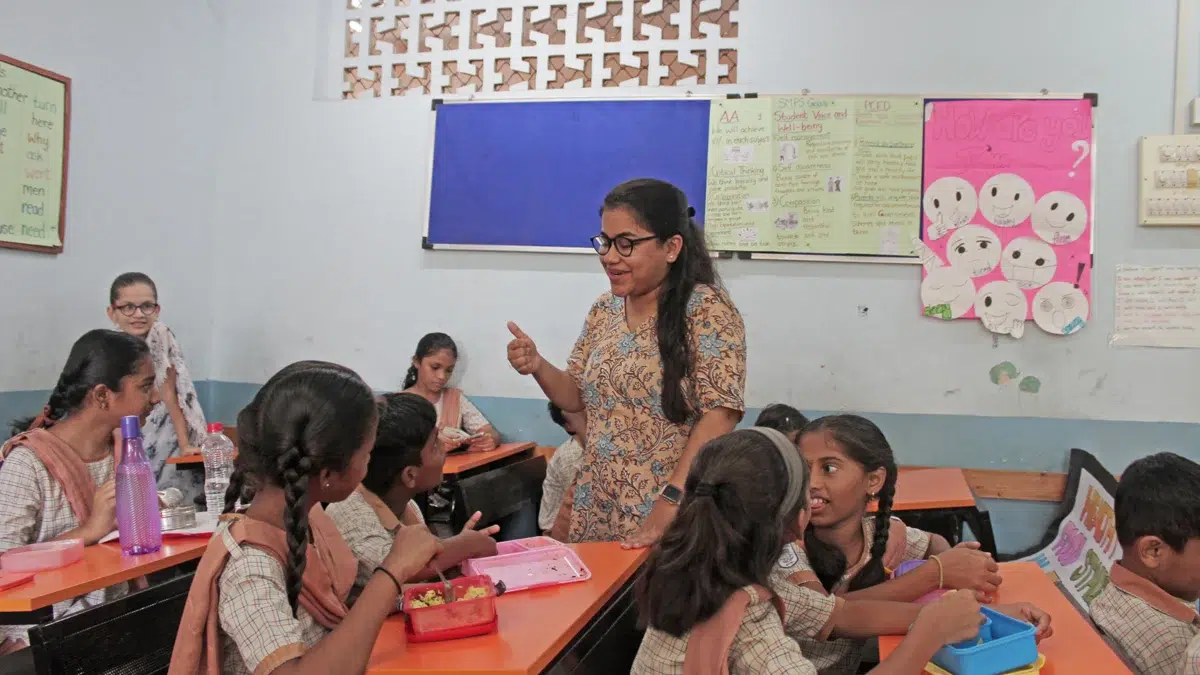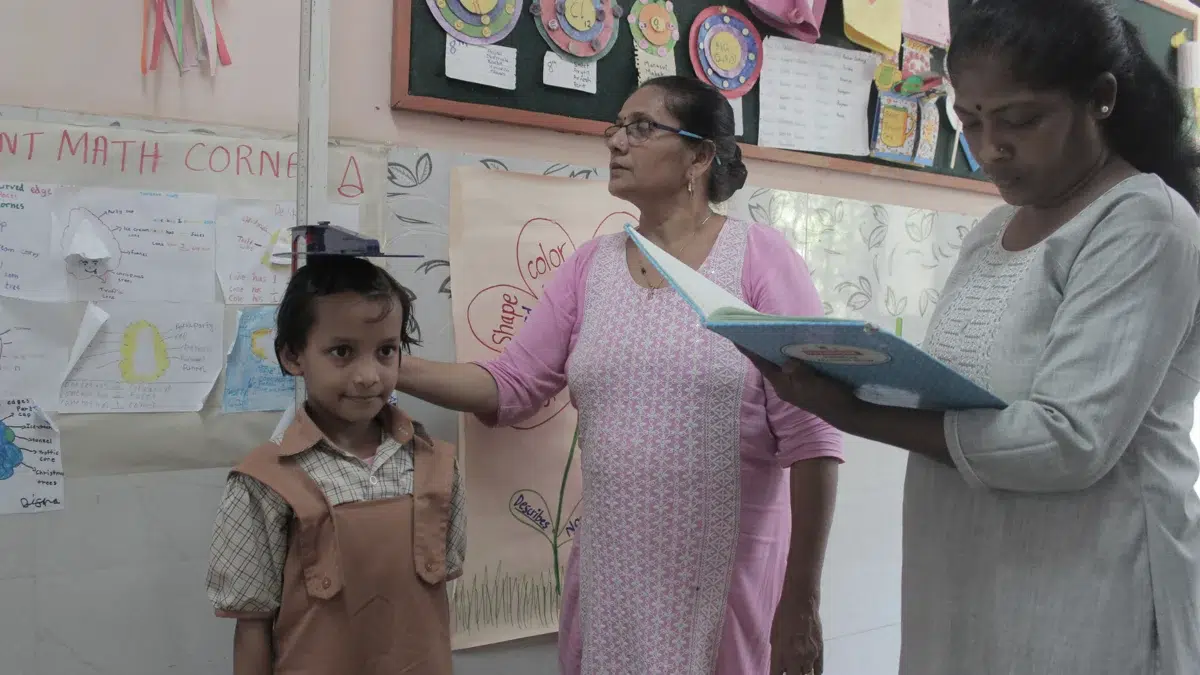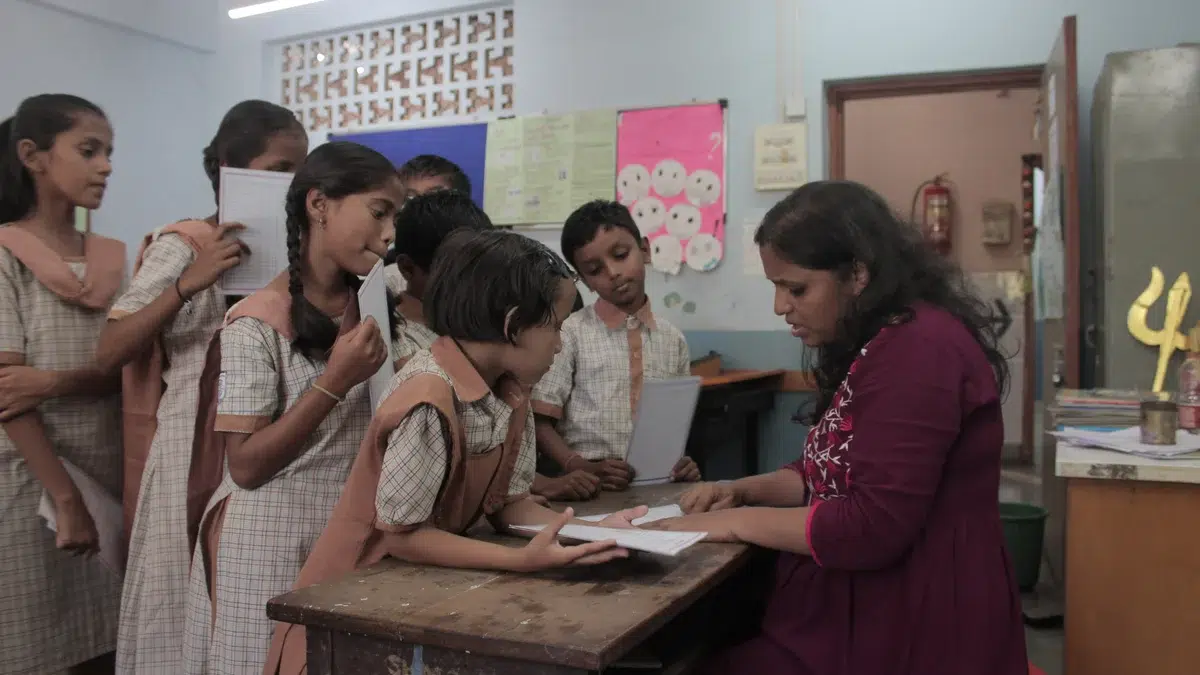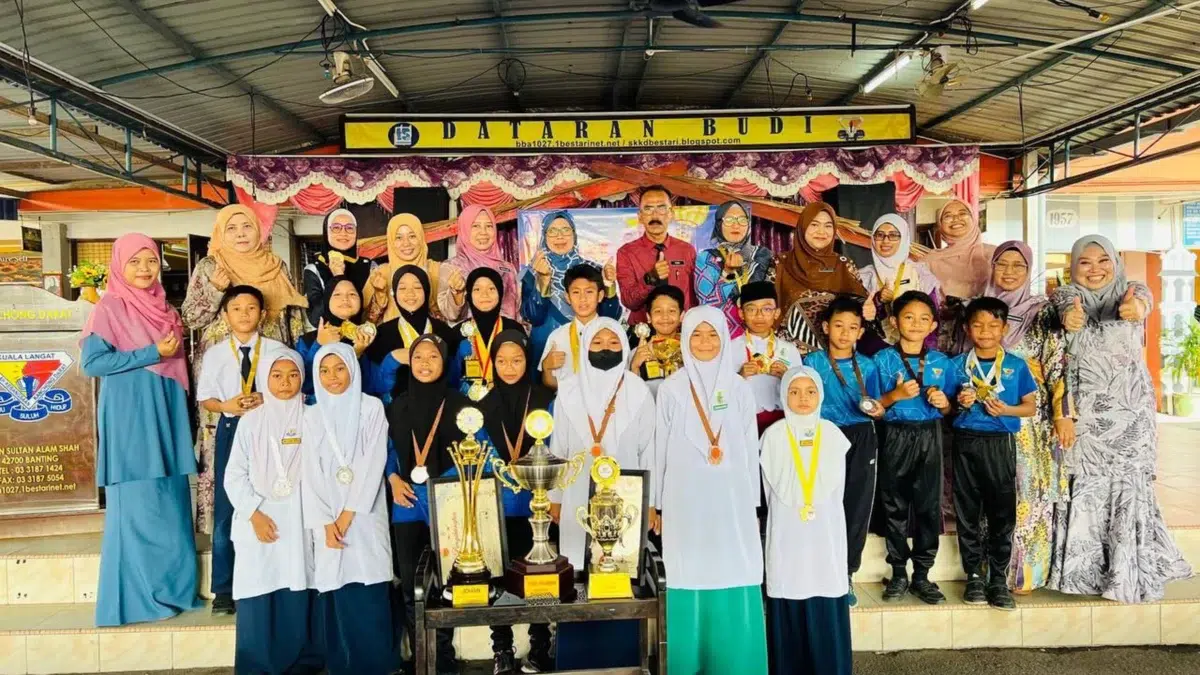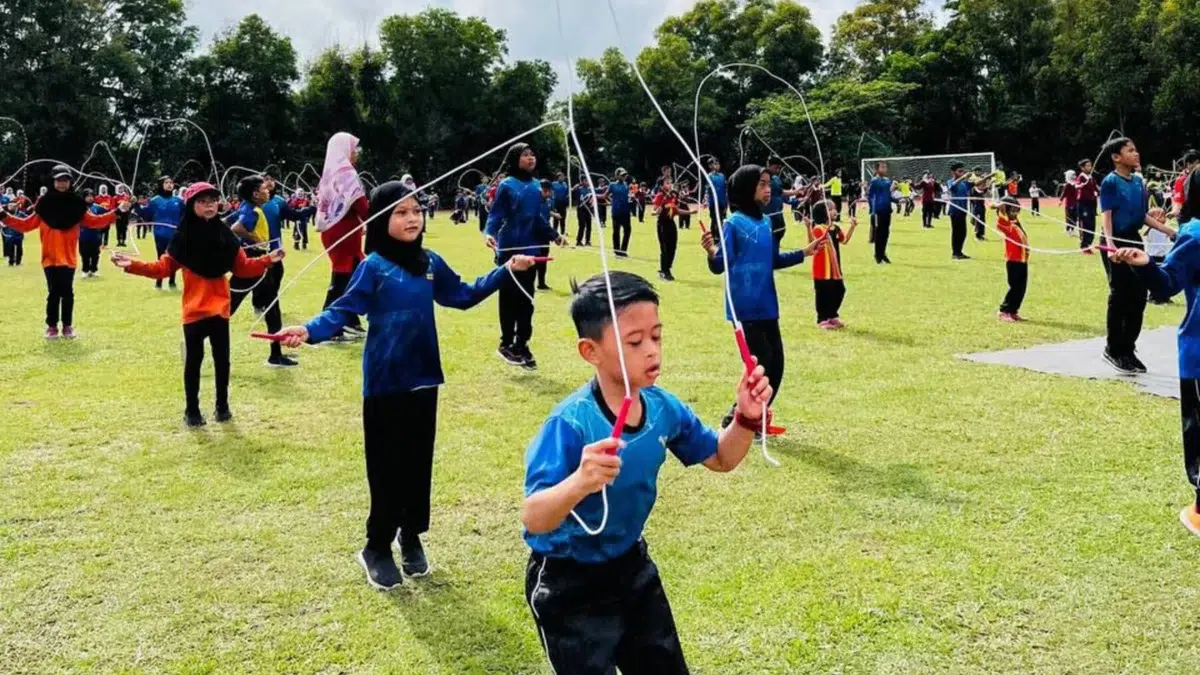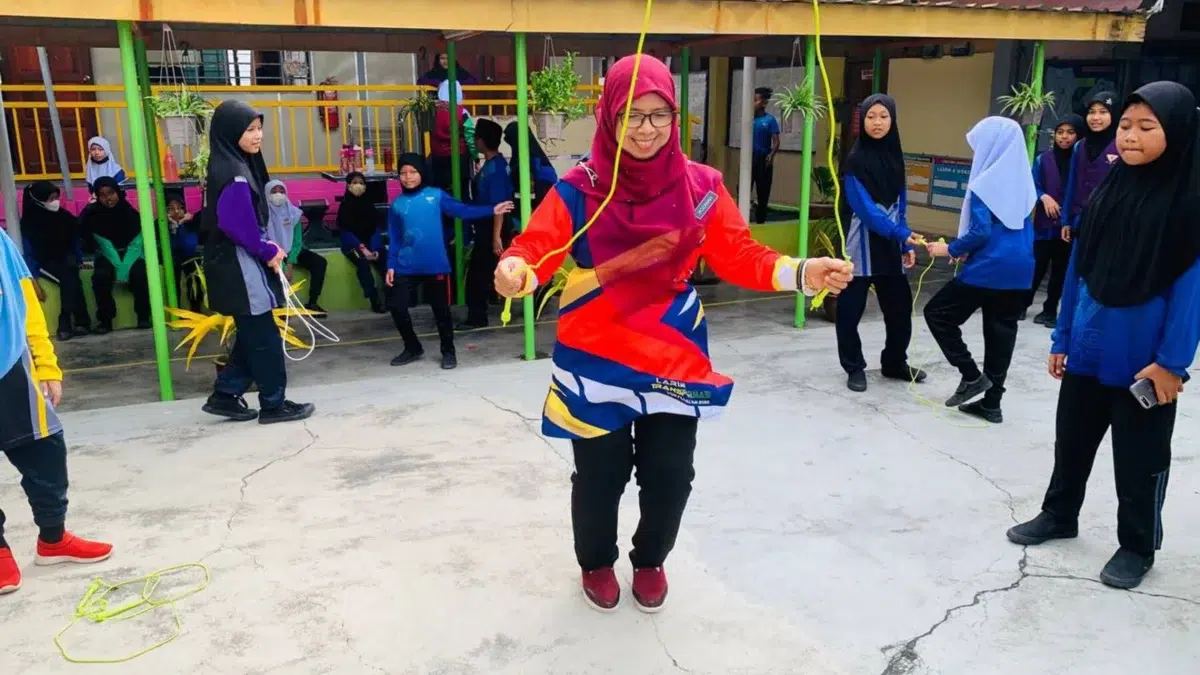- Home
- World’s Best School Prizes
- The Five Prizes
- Supporting Healthy Lives
The World’s Best School Prize for Supporting Healthy Lives recognises and celebrates schools that prioritise and provide access, relevance, and opportunities for students, and their community, to not only be healthy, but they also understand the key role that schools play in fostering and cultivating healthy habits, behaviors, knowledge, and skills, to fulfill their potential and thrive.
Discover the winning and shortlisted schools, celebrated for their unwavering commitment to ensuring healthy settings and conditions for their students and wider community, allowing them to fulfill their potential and thrive.
Winner
Istituto Galilei-Costa-Scarambone
Lecce, Italy
Our Top 3 Finalists
Lecce, Italy
Singapore
London, United Kingdom
Top 10 shortlist
Avanti House Secondary School
United Kingdom of Great Britain and Northern Ireland
Colegio La Giralda
Colombia
GEMS Legacy School
United Arab Emirates
Lydiard Park Academy
United Kingdom of Great Britain and Northern Ireland
Middleton International School
Singapore
Winner
Finalists
Cardiff Sixth Form College
United Kingdom of Great Britain and Northern Ireland
IMG Academy
United States of America
Top 10 shortlist
Beaconhouse Gulshan Campus
Pakistan
Chester Arthur School
United States of America
Rustenburg Girls' High School
South Africa
Beaconhouse Gulshan Campus
Pakistan
Chester Arthur School
United States of America
Rustenburg Girls' High School
South Africa
Winner
Curie Metropolitan High School
Finalists
London Academy of Excellence, Stratford
Larrakeyah Primary School
Top 10 shortlist
Malitbog National High School
Trilema Zamora
Gort Community School
Oak Knoll Elementary School
The Totteridge Academy
Avanti House Secondary School
United Kingdom of Great Britain and Northern Ireland
Yoga and meditation to tackle exam stress
Avanti House Secondary School, a state Hindu secondary school in Stanmore, London, UK, champions a unique values-based educational model in response to the significant pressures and challenges associated with the traditional educational environment, particularly the intense stress induced by exam preparations. Consequently, the school seeks to enhance students' wellbeing by integrating spiritual, mental, and physical health into daily learning. This holistic approach, rooted in the school's “Avanti Way”, fosters not only high academic standards but also promotes deep personal growth and communal responsibility among its 1,190 students.
Established in 2012, the school incorporates traditional subjects alongside ethics, philosophy, yoga, and meditation, reflecting its dedication to developing well-rounded individuals. These elements are strategically embedded within the curriculum rather than as extracurricular activities, ensuring all students participate in nurturing their wellbeing.
Nutrition plays a crucial role in the school's holistic approach. Avanti House provides a robust vegetarian meal programme that aligns with its ethical and health-oriented values, helping students understand the importance of diet in overall wellbeing. This initiative supports physical health and fosters environmental awareness and sustainability among students.
The school's impressive results, including a Progress 8 score that consistently ranks it among the top UK schools, underscore the effectiveness of its educational philosophy. Notably, the school boasts a 97.6% attendance rate, which far exceeds the national average, supporting the effectiveness of its wellbeing initiatives.
Leadership at Avanti House is pivotal in cultivating an environment that values spiritual insight and character formation as much as educational excellence. The principal and deputy principal, both seasoned in educational leadership, drive the school's vision with a clear focus on inclusive practices and community engagement. Its leadership fosters a culture of respect and mutual understanding, crucial for the school's diverse student body.
Avanti House's commitment extends beyond the classroom. It actively engages families and the wider community through workshops and initiatives like family wellbeing sessions and leadership training for teachers, reinforcing its holistic approach to education.
Should Avanti House win the World's Best School Prize for Supporting Healthy Lives, the prize money will be directed towards enhancing these transformative programmes, reinforcing the school's commitment to developing well-rounded, mindful citizens for a sustainable future.
Colegio La Giralda
Colombia
Fostering resilience and emotional wellbeing in a challenging environment
Colegio La Giralda, a state kindergarten through secondary school in Bogotá, Colombia, which is part of Alianza Educativa network, champions emotional wellbeing with its innovative Socio-Emotional Gymnasium, dramatically reducing conflicts and fostering resilience in its 1,400 students amidst socio-economic issues. Set in the challenging neighbourhood of Las Cruces, in Bogotá, the school integrates physical activities with socio-emotional learning, providing a robust framework for students to develop critical life skills and positive relationships.
Central to the school's mission is its innovative Socio-Emotional Gymnasium, a pioneering initiative within the educational sector. This strategy not only supports physical activity but integrates socio-emotional learning, helping students manage emotions, resolve conflicts, and enhance their mental health. Such initiatives have led to a 67% reduction in school coexistence issues and maintained dropout rates below 1%.
Leadership at Colegio La Giralda is deeply committed to transforming educational experiences by empowering students to become agents of change. This is evidenced by their proactive approach during the COVID-19 pandemic, which catalysed the creation of the Socio-Emotional Gymnasium to address increased emotional distress and social isolation among students.
The school's efforts extend beyond immediate educational outcomes, influencing broader community engagement. Activities like art collectives and community forums further embed socio-emotional learning into cultural expressions, enhancing community cohesion and resilience.
Should Colegio La Giralda win the World’s Best School Prize for Supporting Healthy Lives, the prize money would be used to enrich the Socio-Emotional Gymnasium further and host events to disseminate its successful practices, encouraging other schools to adopt similar innovative approaches for promoting mental health and wellbeing.
Concordia International School Shanghai
China
Building an environment where education flourishes because educators thrive
Concordia International School Shanghai, an independent kindergarten through secondary school in Shanghai, China, fosters a healthy, connected community, boosting staff wellbeing and enhancing student success. Serving 1,152 students, Concordia offers a robust American curriculum supported by a dedicated staff of 269 members.
One of the school's key initiatives is its Employee Wellness Programme, launched in 2015 based on the recognition of the intense pressures of a fast-paced, competitive academic environment. Acknowledging the critical role faculty and staff play in nurturing student success, Concordia aimed to support their physical, emotional, and social wellbeing.
The programme began with a wellness competition, achieving a 70% participation rate in its first year. It went on to include fitness classes, cultural outings, and workday retreats, with participation rates soaring to 95-99%. These activities have significantly enhanced the sense of community and wellbeing among staff. Surveys indicate that 80% of participants rate their experience as highly positive, and there's been a noticeable decrease in sick days and doctor visits, suggesting improved overall health.
The impact on students has been significant. Healthier, more engaged teachers have led to increased classroom presence, contributing to better student performance. Additionally, student-focused wellness initiatives and Social-Emotional Learning (SEL) integrated into the curriculum ensure that student wellbeing remains a priority. The programme also includes parents, creating a supportive community that positively influences students. This comprehensive approach ensures that both staff and students thrive in a supportive environment.
The programme’s success extends beyond quantitative metrics. Faculty and staff report increased feelings of connectedness and improved mental health, further benefiting students by promoting a culture of health and balance. Initiatives such as Wellness Wednesdays, which saw a 99% turnout, and partnerships with local hospitals for Traditional Chinese Medicine consultations have further strengthened this holistic approach.
Should Concordia win the World's Best School Prize for Supporting Healthy Lives, the prize money will be used to expand wellness resources, including fitness options and stress management tools. This investment will enhance the school’s wellness infrastructure, promoting a healthier, more connected community.
GEMS Legacy School
United Arab Emirates
Empowering holistic wellbeing and sustainable lifestyle choices
GEMS Legacy School, an independent school in Dubai, UAE, is a pioneer in comprehensive wellness in education, impacting over 6,285 students with initiatives like school-wide fruit breaks and sleep hygiene workshops, promoting holistic wellbeing and sustainable lifestyle choices.
Established in 1990, GEMS Legacy School educates students from kindergarten to secondary levels. The core of the school’s mission is rooted in the PERMA-H model, which encompasses emotional, physical, occupational, social, spiritual, intellectual, environmental, and financial wellbeing, involving innovative teaching methods and a holistic curriculum.
The school’s wellbeing policy is central to achieving a nurturing environment. This initiative enhances the physical and mental health of students, staff, and parents, and supports broader goals such as community wellbeing and sustainable living. Initiatives like the school-wide fruit break and sleep hygiene workshops are structured to enhance daily health habits and promote sustainable lifestyle choices.
Additional activities at GEMS Legacy include collaborations with international schools and local community projects, each contributing significantly to fostering a global perspective on wellbeing. These efforts have been recognised by improvements in student and staff wellness metrics and accolades for community initiatives.
Should GEMS Legacy School win the World's Best School Prize for Supporting Healthy Lives, the school intends to use the prize to fund the creation of an on-campus gym and enhance mental health programmes, aiming to further integrate health and happiness into the fabric of educational success.
CM RISE School, Kalyanpura, Jhabua
India
Integrating health and education for community wellbeing
Government CM RISE Model Higher Secondary School, a government school in Jhabua, India, has set a transformative example of holistic education for community wellbeing, integrating health education, nutritional meals, and community engagement to uplift children from poverty, especially among the Scheduled Tribes community it primarily serves.
Established to address socio-economic challenges, the school educates 650 students, with a remarkable increase from just 45 students in 2017. The core mission is centred around a holistic educational model that includes regular health screenings, nutritional meals, and physical activities like sports and yoga.
The 'Hostel for Girls' initiative is pivotal in combating early marriages and dropouts, enhancing girls’ safety and enabling them to continue their education. This initiative, coupled with community-driven educational programmes, has led to a significant increase in attendance from 49% to 85%, and academic performance improvements from 52% to 78%.
Government CM RISE Model Higher Secondary School is also involved in community engagement through infrastructure improvements and health initiatives, which contribute significantly to enhancing student safety and accessibility. Efforts like the construction of a 2 km-long road and fencing along the school premises have had the support of local collaborations.
Should Government CM RISE Model Higher Secondary School win the World's Best School Prize for Supporting Healthy Lives, the prize money would be used to expand its successful model, reaching more children and fostering a healthier, better-educated future generation, aiming to replicate its approach in other regions facing similar challenges.
Istituto Galilei-Costa-Scarambone
Italy
Combatting bullying and promoting mental wellbeing
Istituto Galilei-Costa-Scarambone, a state secondary school in Lecce, Italy, has forged a path in combating bullying and enhancing mental wellbeing through its student-led initiative, Mabasta ("stop it"). Established in 1885, the school caters to students in a community struggling with youth migration and economic disparity, driving change by fostering a culture of resilience and innovation.
The school’s flagship project is called Mabasta, which began in 2016 after students were moved by a fellow student’s suicide attempt due to bullying. The initiative champions a proactive anti-bullying strategy and has already engaged over 35,000 students across Italy with its unique peer-led model. The approach not only empowers students to monitor and report bullying through innovative tools like the digital "MabaDAD" but also fosters student leadership by involving them in ongoing school-wide dialogues, ensuring a sustainable, student-driven fight against bullying.
MabaDAD is best described as a "Digital Antibullying Desk" – or an online version of the "BulliBox" – allowing students, teachers, and parents to report bullying incidents anonymously using smartphones, tablets, or PCs. In addition to the confidential and accessible means of reporting, the platform helps the school to address the concerns promptly, enhancing Mabasta’s overall effectiveness and strategy in maintaining a safe and supportive school environment. Thanks to MabaDAD, the Mabasta project has measurably reduced bullying incidents and significantly improved the school climate.
Leaders at Istituto Galilei-Costa-Scarambone are deeply committed to a student-centric educational model, integrating entrepreneurship and personal growth, making the school a beacon of hope that counters youth migration by promoting local engagement. Their efforts are further exemplified by the annual Student Mental Health Week, aligning with global goals to support holistic wellbeing.
The Mabasta project's success is profound, with noted decreases in bullying and heightened awareness amongst students and staff. Success stories from across the country, where immediate behavioural shifts post-Mabasta intervention were observed, underscore the model’s efficacy. The school has embraced its role as a national leader in preventive education.
Should Istituto Galilei-Costa-Scarambone win the World’s Best School Prize for Supporting Healthy Lives, the prize will be used to expand the Mabasta project nationally. This expansion aims to train teams in other regions and enhance awareness through digital campaigns, ultimately nurturing a safer educational environment across Italy.
LEAD Monrovia Football Academy
Liberia
Elite sports and holistic health for underserved youth
LEAD Monrovia Football Academy (LEAD MFA), is a full-time residential primary and secondary school in Careysburg, Liberia, that merges rigorous academics with elite sports training and holistic health for underserved youth. Established in 2015, the academy was motivated by the urgent need to address the severe lack of quality education and health services for children from economically challenged backgrounds in Liberia. LEAD MFA is also a partner of LEAD Edu, an international non-profit that supports and grows programmes with the aim of building a global network of ethical, empathetic, and entrepreneurial leaders.
Many students at LEAD MFA come from backgrounds where they previously received only one meal a day, and now they receive three nutritious meals daily, significantly improving their health and wellbeing. The academy’s holistic approach transcends traditional educational boundaries by integrating physical education, nutritional meals, and comprehensive healthcare into a child’s learning experience. LEAD MFA also fosters socio-emotional growth and leadership skills through sport to support students on their journey to drive positive change in their communities.
Structured around the philosophy that health and education are interdependent, LEAD MFA’s programme includes daily sport training sessions, a balanced diet rich in local produce, and regular health check-ups. These initiatives have led to marked improvements in students' academic performance, with students performing 20% better academically than their peers. Additionally, students have shown higher levels of resilience, communication skills, and teamwork.
The academy is committed to gender equality and provides equal opportunities for boys and girls to engage in both sports and leadership activities. For example, one student from one of the most impoverished regions of Liberia became the football team captain and secured sports and academic scholarships in the United States, highlighting the transformative impact of the academy’s programmes.
Recognising the transformative power of sport and education, LEAD MFA has become a household name in Liberia, with a selection process that draws over a thousand applicants annually.
Should LEAD Monrovia Football Academy win the World's Best School Prize for Supporting Healthy Lives, the school aims to expand its impact, reaching more communities and reinforcing the vital role of integrated health education in fostering sustainable development.
Lydiard Park Academy
United Kingdom of Great Britain and Northern Ireland
Revolutionising support for at-risk students
Lydiard Park Academy, a state school in Swindon, UK, has revolutionised support for at-risk students with its “School of Solutions” – a school within a school model – that significantly impacts students at risk of exclusion or those struggling to attend. This initiative has seen a remarkable success rate of over 80% reintegration, enhancing both Emotional and Intellectual Quotients.
Established as part of the Park Academies Trust, the academy educates 1,275 students aged 11 to 18, with a diverse demographic that includes 32 languages spoken and a high proportion of students needing special support. The core mission is centred on early intervention and a supportive environment to address educational barriers related to mental health issues.
The 'School of Solutions' is pivotal in fostering resilience and emotional intelligence through a unique curriculum that blends therapeutic and educational strategies. Noteworthy achievements include a 4% average increase in attendance and marked improvements in students' self-esteem and social-emotional skills.
Additional activities at Lydiard Park include partnerships with other schools and community engagement, significantly contributing to spreading effective mental health support and educational inclusivity. The programme's success has also influenced a broader adoption of mental health support across educational systems.
Should Lydiard Park Academy win the World's Best School Prize for Supporting Healthy Lives, the prize money would be used to expand the 'School of Solutions', allowing the model to be replicated both nationally and internationally, aiming to enhance its groundbreaking approach to education and mental health.
Middleton International School
Singapore
Promoting health and wellbeing through holistic education
Middleton International School, an independent school in Singapore, blends health and wellbeing with academic rigour. Recognising the profound impact of mental and emotional wellbeing on academic success, the school has pioneered holistic education that embraces mindfulness, resilience, and emotional intelligence, setting a benchmark in SEL curriculum integration in Southeast Asia.
Established in 2017, Middleton educates 1,400 students from kindergarten to high school levels. At the core of the school's mission is a curriculum that fosters mindfulness, resilience, and emotional intelligence, involving structured wellbeing practices alongside academic subjects.
The collaboration with The Contentment Foundation is central to achieving an enriched educational experience. This initiative enhances students' and staff's mental and emotional health and supports broader goals like community wellbeing and inclusive education.
Middleton has dedicated leadership roles that include those of the Wellbeing Coordinator, Inclusive Education Coordinator, Pastoral Care Coordinator, Non-Academic Vice Principal and Senior Parent Liaison Manager, facilitating a system and culture that support and embody the school's ethos of wellbeing. Their efforts are evident in the successful integration of the SEL curriculum, making Middleton the flagship school for this approach in Southeast Asia.
Additional programmes at Middleton include international partnerships and community service projects, each contributing significantly to global citizenship and educational excellence. The success of these efforts has been evident in the improvements in the school’s OECD PISA scores.
Should Middleton International School win the World's Best School Prize for Supporting Healthy Lives, the school intends to use the prize to expand its impact by enhancing staff training, further advocacy for community wellbeing, and providing scholarships to ensure access to its transformative education, aiming to further integrate health and happiness into the fabric of educational success.
Mumbai Public School L.K. Waghji International (IGCSE)
India
Healthy food for healthy lives
Mumbai Public School L.K Waghji International (IGCSE), a state kindergarten and primary school in Mumbai, India, has taken significant strides to foster healthy lifestyles among its students. Faced with the challenge of students consuming junk food like chips and chocolates, leading to poor nutrition and significant food wastage, the school launched the "Mission Healthy Food" project. This initiative aimed to transform eating habits and promote overall wellbeing.
Despite facing low funding, the school has embraced a mission to excel in research and innovation, particularly focusing on the holistic development of its students. The project began with educational sessions led by renowned paediatricians and doctors, who taught teachers and students about the ill effects of junk food and the benefits of a balanced diet. The school then engaged parents through informative sessions, using innovative resources like rangoli to highlight the importance of nutritious meals. This comprehensive approach included the implementation of a 21-day healthy food challenge, where students were rewarded with stars for bringing healthy lunches.
As a result of the initiative, more students now eat the nutritious, school-provided lunch, leading to an increased need for food supplies. The visible reduction in junk food packaging waste and the increase in fresh fruit peelings in dustbins are testament to the project's success. Additionally, students have become proactive in promoting healthy eating, both within the school and at home.
The school has also integrated its healthy food mission into its curriculum by having students create board games on healthy eating. This hands-on approach reinforced healthy habits and fostered creativity and collaboration among students.
Winning the World's Best School Prize for Supporting Healthy Lives would enable Mumbai Public School L.K Waghji International to reward its students further, exhibit their achievements, and share their successful practices with other schools, thereby promoting a culture of health and wellness across the community.
Lorem ipsum dolor sit amet consectetur. Arcu vitae aliquet sagittis placerat in. Ultrices varius purus sed diam sit dapibus. Ut purus fermentum id velit. Auctor id risus vitae venenatis nisl. Sit quam egestas tortor vulputate nunc aliquet.
Blandit mauris faucibus quam elementum ipsum. Eget sed morbi netus diam ultrices. In aenean arcu blandit convallis. Rhoncus est interdum nunc nulla interdum consectetur nulla mattis euismod. Amet arcu dictum egestas quis tempor gravida tellus tellus commodo.
Beaconhouse Gulshan Campus
Karachi, Pakistan
Educating students and society for safe food practices
Beaconhouse Gulshan Campus, an independent international school in Karachi, Pakistan, has initiated a groundbreaking food safety awareness programme that is transforming the way its students and community view their daily diet, leading to healthier eating practices and a brighter future. Having identified physical, chemical, and biological contaminations in daily food items, including mishandling and improper food processing, the school is spreading its findings through its Health, Wellness and Food Borne Disease awareness programme.
Research shows that there are more than 150 million illnesses in South-East Asia due to foodborne diseases, resulting in approximately 175,000 deaths per year. Beaconhouse Gulshan Campus analysed that these statistics are reflected in the school’s attendance records which show consistent student absences due to gastrointestinal issues. However, there were several challenges in implementing the awareness programme, including the high rate of illiteracy and unawareness about health and hygiene in the general population. The community was also unprepared to bring about any change in their lifestyle.
To overcome these challenges, the school focused on educating its students, parents, and community members on food safety. As a first step, the school researched facts about foodborne diseases in South-East Asia and searched for different sources of food contamination. The school then encouraged its students to present projects on food safety through different mediums, like poster making, role plays, videos, and animations. The school also organised panel discussions with medical professionals to gain insight into the prevalence of food-related illnesses and arranged video conferences with health workers from local and international hospitals to see the real picture of patient load due to food borne diseases.
The school's food safety club has played an active role in educating people about all possible ways of food contamination. They have shared their findings and concerns with the community by being active on social media. Their efforts first brought about change in the school canteen, which now follows food safety measures. Club members regularly visit markets to interview shopkeepers and buyers and provide on-the-spot education.
As a result of the school's Health, Wellness and Food Borne Disease awareness programme, more than 420 students’ families – or roughly 60% of its school community population – now receive food safety awareness sessions twice a term, delivered by well-known educators, nutritionists, and medical professionals.
If Beaconhouse Gulshan Campus wins the World's Best School Prize for Supporting Healthy Lives, it intends to expand its Health, Wellness and Food Borne Disease awareness programme to other schools and the wider world. The school aims to create a ripple effect in the community, leading to safer food practices and healthier lives.
Cardiff Sixth Form College
Cardiff, Wales, UK
Achieving academic success and student well-being: How one of the country’s top schools for A Levels does it
Cardiff Sixth Form College, an independent international school in Cardiff, Wales, UK, has revolutionised the way its high-achieving A-Level students approach their mental and physical health. Through the school’s innovative CREATE© Portfolio, students are not only maintaining academic excellence but are also developing the resilience and balance needed to succeed in life. Over nine in 10 pupils feel the College equipped them with valuable skills that they will be able to use throughout Higher Education and beyond, increasing their sense of wellbeing and allowing them to develop in areas that they would not have had the opportunity to have done previously. This bespoke solution has set a new standard in the education industry, positioning Cardiff Sixth Form College as a trailblazer in the field of student wellbeing.
Cardiff Sixth Form College frequently tops school league tables for A-Levels and the school recognised that it would need to be extremely proactive in providing balance, developing resilience, and attaining a consistency of approach to healthy futures. The school’s CREATE© Portfolio was designed to strike this balance. Each of the portfolio’s six key areas represents a letter of the word CREATE – Community, Respect, Engage, Active, Thrive, and Enrich – and each key area has its own theme, such as staying active, resilience, and self-care, that are linked to local and national mental health initiatives and positive psychology models.
Students choose specific areas based on areas of their lives they would like to develop further and are then set tasks, such as volunteering, for which they are awarded points over the course of two years. The aim of awarding points is to encourage engagement. Due to the large multicultural nature of the college, global perspectives on wellbeing and mental health were also embedded into the programme to make it more readily relatable to all learners.
In addition to improving student wellbeing, the programme has led students themselves to reach out to the local community with their own support and wellbeing initiatives, like tutoring disadvantaged pupils and a free advisory service on applying to universities in the UK.
If Cardiff Sixth Form College wins the World's Best School Prize for Supporting Healthy Lives, the school intends to use the prize funds to further develop the CREATE© Portfolio programme, both within the school and with its wider community, while continuing to support their students' mental health and wellbeing to maintain academic excellence.
Chester Arthur School
Philadelphia, Pennsylvania, USA
How a school eliminated suspensions through a restorative approach to conflict resolution
Chester A. Arthur School, a public kindergarten and primary school in Philadelphia, Pennsylvania , USA, has tackled conflicts, fostered inclusion and nearly eliminated suspensions among its racially and economically diverse community, where 63% of students identify as ethnic minorities, by implementing a "restorative approach". While nearly 8% of students faced out-of-school suspensions in the 2017-18 academic year, today this number is nearly zero.
Led by Principal Dr. Mary Libby’s expertise in restorative practices and in line with the district's shift towards responsive classrooms and trauma-informed practices, the school’s approach creates a positive and inclusive school environment where students feel heard, respected, and supported in resolving conflicts in a restorative manner.
Dr. Libby and the school counselor underwent foundational training in restorative interventions that they then provided to the rest of their colleagues. Today, the counselor and climate staff provide skill-building lessons and conflicts are resolved in a dedicated restorative room. The whole school participates in daily meetings focused on social and emotional skills, while collaborations with community partners enhance expertise in mindfulness, coping skills, teen mental health, and healthy relationships.
The school also prioritises professional development on trauma-informed practices and supportive environments. For example, instead of blaming, caring adults ask questions like "What happened? Who was impacted? What needs to be done to repair the harm?" This approach fosters understanding, repair, and growth.
On the back of a student-led campaign, the school recently saw this thinking applied to its own name. Recognising the need to better demonstrate inclusivity and preserve the local area heritage, students took the lead in advocating for a name change that aligns with the school's values. This initiative was a prime example of the restorative approach being used beyond interpersonal interactions towards a greater purpose, as it fostered open communication, active listening, and collective decision-making among students, staff, and the wider community.
If Chester A. Arthur School wins the World's Best School Prize for Supporting Healthy Lives, it intends to be a model for other Philadelphia schools and beyond by further enhancing its restorative approach with the Bridging Mental Health and Education in Urban Schools (BRIDGE) programme, an evidence based initiative designed to prevent and address challenging classroom behaviours and conflict in city schools.
EEMTI Joaquim Bastos Gonçalves
Carnaubal, Ceará, Brazil
Tackling mental health issues with a culture of support and empathy
EEMTI Joaquim Bastos Gonçalves, a government secondary school in Carnaubal, Ceará, Brazil, has provided a lifeline to students struggling to reintegrate society since the COVID-19 pandemic, but also created a culture of support and empathy throughout the school community. With a 67% drop in just 18 months in students requiring social and emotional support, the school’s Adopt a Student project has not only improved the lives of pupils, but has also raised awareness about the importance of mental health within the school community and beyond.
In a community where violence and other emotional behaviours have been commonplace among students, the school became aware of new anxieties affecting community children as society began to open back up at the end of the pandemic lockdowns. Within the school itself, as much as 6% of the student population were eventually diagnosed with severe emotional problems, including self-harm.
As a result, the school developed the Adopt a Student project to identify vulnerable students, provide them with assistance from a professional psychologist, help the students work more effectively on socio-emotional skills in classrooms, and educate the school community about the importance of mental health.
The school first presented the project to the parents and local governing body to help explain its objectives and increase its reach. Students then either refer themselves to the programme or are referred by their parents or teachers. From there, the school enrols them in the project. Because there is a stigma attached to mental health in the community, some students resist being entered into the programme and can therefore only be encouraged.
Of the original number at the project's launch in September 2021, less than 10 students still continue to be assisted. Those who have received support have reported improvements in their self-esteem and overall well-being, resulting in better academic performance and a renewed sense of hope. The project has also seen an increase in community support and engagement.
If EEMTI Joaquim Bastos Gonçalves wins the World's Best School Prize for Supporting Healthy Lives, the school intends to use the prize to expand its Adopt a Student project and provide more support to students struggling with mental health issues. The school also plans to collaborate with other schools in the region to promote a culture of mental health and wellness.
EMEB Profª Maria Aparecida De Souza Almeida Ramos
Jundiaí, São Paulo, Brazil
Where the ‘Little Fish’ foster healthy living for all
EMEB Profª Maria Aparecida De Souza Almeida Ramos, a government Kindergarten school in Jundiaí, São Paulo, Brazil, is a model for how early childhood education can promote health, environmental stewardship, and community engagement. Affectionately nicknamed ‘Little Fish’, the early childhood education school has established a Pedagogical Political Project that focuses on raising awareness and engaging parents, communities, and children for a more just, sustainable, and healthy life.
The school’s demographic is 3- to 5-year-olds from a small, economically-disadvantaged community. As such, the school’s healthy eating initiative forms the baseline of its Pedagogical Political Project. To that end, the school manages its own vegetable garden at and has developed several teaching strategies to incorporate the project. This has led to children becoming more interested in planting, harvesting, and preparing food, and families have also created organic gardens in their homes based on the school’s guidance.
To offset the number of hours children have reported being in front of screens and the limited amount of free play they have access to in natural spaces, the school also conducts regular outdoor activities, collecting elements from nature for artistic productions, building mandalas (geometric configurations of symbols) from leaves and seeds, and encouraging the children to do the same at home.
The outdoor activities in a naturalised space also teach the children to respect the various forms of life that they discover around their school, such as small animals, plants, and insects. This creates a connection with nature, where some school projects involve taking care of chickens and building an insect hotel.
The school is also focused on environmental care and sustainability, teaching children about composting, how to use water without wasting it, taking part in street cleanups to collect and properly dispose of recyclable materials, as well as the proper disposal of cooking oil, to teach them how they can minimise their impact on the environment.
If EMEB Profª Maria Aparecida De Souza Almeida Ramos wins the World's Best School Prize for Supporting Healthy Lives, it intends to expand its initiatives and inspire other schools to follow its example.
Escuela Nº67 de Pueblo Olivera
Olivera, Salto, Uruguay
How a school with only two teachers collaborated to tackle water contamination making students sick
Escuela Nº67 de Pueblo Olivera, a government kindergarten and primary school in Olivera, Salto, Uruguay, has been nothing less than remarkable in its efforts to overcome a water contamination issue in the town. Through its tireless efforts, the small, two-teacher school not only tackled a real-life problem that had been harming its community but also raised awareness about the importance of water quality, while also highlighting the need for research in small and remote communities. The school’s commitment to the health of its children and community is a testament to the power of collaboration and community-driven initiatives.
Escuela Nº67 de Pueblo Olivera was originally faced with an inexplicable situation where the students were constantly afflicted by diarrhoea and vomiting. Despite any lack of investigative expertise, the two teachers used a process of elimination to test everything from the food and soil, and even the air. The process was hampered by community resistance, limited interest from labs and universities, difficulty in raising funds, and the lack of resources in an isolated area.
Eventually, the school was able to collaborate with various public and private institutions who taught it how to collect samples that were then sent in for analysis. One of these organisations was Ceibal, a technology-based teaching foundation, who connected it with relevant research and analysis facilities.
The town that Escuela Nº67 de Pueblo Olivera serves is made up of just 200 inhabitants, all of whom use the same single well for all of their drinking, cooking, cleaning, and other water needs. When it was discovered that the water was the source of contamination, the immediate solution was to boil drinking water at home. Later, the school managed to have a chlorinator installed in the pump to make the water drinkable, a process that was later optimised, using test tubes to ensure the optimal level of chlorine.
To help raise awareness and teach the importance of water quality, Ceibal helped use the water contamination situation to develop a course on health and water quality management. By involving children, families, and the whole community in the problem-solving process, the school achieved a solution that improved everyone’s quality of life.
If Escuela Nº67 de Pueblo Olivera wins the World's Best School Prize for Supporting Healthy Lives, it intends to use the prize money to buy technology to design devices that ensure safe drinking water and to build a multipurpose community space for meetings, workshops, sports, and other needs, becoming a reference centre for local activities.
IMG Academy
Bradenton, Florida, US
Beyond the field: This school’s holistic approach champions wellbeing to create well-rounded student-athletes
IMG Academy, an independent Secondary school located in Bradenton, Florida, US, and its online products, fill one quarter of all US freshman college sports rosters annually. It has achieved such phenomenal success by accelerating a paradigm shift in student-athlete development, reshaping the educational landscape and empowering young adults to surpass their own limits. With their groundbreaking Athletic and Personal Development (APD) programme, the school provides a whole-student, comprehensive life skills curriculum focused on seven key life skills – Coachability, Focus, Resilience, Confidence, Handling Pressure, Leadership, and Nutrition – to create well-rounded, vibrant, and fulfilled individuals, both on and off the field.
Recognising that success in life, athletics, and academics goes beyond drills and memorisation, IMG Academy developed its curriculum and APD programme on the basis that its benefits, like leadership, optimism, focus, handling the fear of failure, and coachability, could indeed be taught through a well-balanced, well-structured approach. By immersing students in the programme, the school graduates three-dimensional beings, healthy in mind, body, and spirit.
The APD programme is built on a foundation of intuition, performance science research, and school-wide testing conducted over generations of students, coaches, and teachers. Today’s teachers, athletic coaches, mental coaches, nutritionists, and administrators work together to consistently deliver the APD curriculum in both the classroom and on the field or court, working with students to identify and address mental barriers, develop coping mechanisms for stress and pressure, like knowing when to rest or persevere, and build a positive mindset conducive to long-term peak performance.
In 2021 alone, approximately 30,000 students were successfully placed into college, and the 2022 graduating class included 209 student-athletes committed to D1 universities, 83 high honour graduates, and 6 students attending Ivy League universities.
Through its success, IMG Academy has inspired further reach through its online coaching platform IMG+. This platform provides students worldwide with access to its world-class coaching and expertise, thereby positively influencing students' lives and promoting the importance of holistic development on a global scale.
If IMG Academy wins the World's Best School Prize for Supporting Healthy Lives, it intends to continue its mission of providing great education through holistic personal development. It plans to expand access to resources, raise awareness of the importance of whole-student thinking, and allocate funds to better serve its student body. With a focus on scalability and adaptability, IMG Academy aims to extend the APD model to other schools, benefiting millions of students worldwide.
Rustenburg Girls' High School
Rondebosch, Cape Town, South Africa
How one school champions holistic growth through sport
Rustenburg Girls’ High School, a government school in Rondebosch, Cape Town, South Africa, embraces the vital role that physical and mental fitness play in a well-rounded education and has taken proactive steps to ensure its students' holistic growth and success. The school has introduced a Sports Policy to ensure that learners are provided with opportunities to participate in various sports engagements, thanks to which the school aims to promote healthy living and enhance the overall wellbeing of its students and wider community.
Rustenburg Girls’ High School is an unapologetically academically-driven school, but wanted to balance this focus by leveraging South Africa’s appetite for sports and being outdoors. The school recognised early on that sports teach valuable life skills, such as teamwork, goal-setting, and time-management, and while these complement academic and cultural programmes, the sports’ themselves provide learners with the additional benefits of physical activity, such as stress relief, improved mood, and better overall wellbeing.
For this reason, the school implemented a Sports Policy that has made sports compulsory for Grade 8 and 9 learners. The policy allows learners to choose from a wide range of sports, including both competitive and social options. The athletic instruction itself provides one structured and one unstructured sports lesson every 10 days, meaning students have both organised and creative opportunities within the programme.
In addition to contributing to its ongoing line of top-level, nationally- and internationally-recognised athletes, the impact of the school's approach can be seen in the quality friendships, sense of belonging, and overall sense of well-being experienced by the learners.
If Rustenburg Girls' High School wins the World's Best School Prize for Supporting Healthy Lives, the school intends to upgrade facilities and equipment to increase its focus on promoting healthy lives. The school will also continue to open up its facilities to other schools that may not have access to similar resources. Additionally, some of the prize money will be allocated to school priority projects, which will enhance the experience for all learners at Rustenburg Girls' High School and further promote healthy living.
Shindewadi Mumbai Public School (The Akanshka Foundation)
Mumbai, India
One school’s focus on healthy eating to reverse malnutrition in its community
Shindewadi Mumbai Public School (The Akanshka Foundation), a charter school in Mumbai, India, is attempting to reverse the impact of low immunity and poor nutrition among its student body and wider community after the lockdown. The school has more than doubled the number of children to healthy weight, proving that its comprehensive programme is both robust and effective in promoting healthy lifestyles.
In its 14-year history, the school’s focus has changed along with its growth, but the one constant has been the health and nutrition of its students, with a record of malnourishment in the community. The COVID-19 lockdowns in particular had a severe impact on the health and nutrition, with 235 students – or roughly 50% of the student body – underweight when the school reopened, 103 of whom were severely malnourished, and only 31 students in the whole school at a healthy weight.
To address this issue, the school implemented a comprehensive programme that included awareness sessions, parent meetings, community events, nutritional monitoring of school meals, and initiatives to promote healthy food choices. One such initiative was the school’s “9 days, 9 colours, 9 recipes” event, which took place during the 9-day Navaratri festival and highlighted the importance of eating colourful and healthy food. The initiative saw 350 women take part, with several of them demonstrating and sharing low-cost, healthy recipes.
Shindewadi Mumbai Public School’s multifaceted approach also includes collaborating with the Indian Council of Medical Research for counselling and dietary suggestions for its underweight students. The school management committee monitors the nutritional value and taste of the government-provided midday meal and pushes for changes in vendors when required to improve quality. Additionally, the school requires every student to bring a healthy lunch from home, with teachers making sure that food gets eaten.
As a result of its efforts, all 103 severely undernourished students have gained at least 1.5kg and student families have become much more involved in learning about and implementing healthy eating habits.
If Shindewadi Mumbai Public School wins the World's Best School Prize for Supporting Healthy Lives, the school intends to expand its programme and create more awareness sessions, parent meetings, and community events to promote healthy lifestyles. The school aims to further improve the quality of the midday meal and ensure that every child has access to nutritious food, regardless of their socio-economic background.
Sekolah Kebangsaan Kanchong Darat
Banting, Selangor, Malaysia
Building resilience and fostering wellbeing: One school’s approach to creating great minds and healthy citizens
Sekolah Kebangsaan Kanchong Darat, a government primary school in Banting, Selangor, Malaysia, has become a beacon of resilience with its Great Mind, Healthy Citizens project. Amidst the challenges during the COVID-19 lockdown, the school took bold steps to empower its students and uplift the entire community’s physical, emotional, and spiritual health, resulting in an 18% drop in obesity rates and countless stories of renewed student wellbeing.
Situated in a rural area outside Kuala Lumpur, SK Kanchong Darat's students are predominantly from farming families and other labour-intensive jobs. The COVID-19 lockdown led to socio-economic hardships, which resulted in unhealthy routines and emotional distress, with some students experiencing anxiety and depression.
To address the situation, the school developed the Great Mind, Healthy Citizens initiative that integrated the curriculum, student affairs, and co-curricular elements, and that focused comprehensively on physical, emotional, and spiritual wellbeing.
The project’s physical focus involved a jump rope programme, which eventually turned into a popular sport among students and positioned the school as a leader in jump rope competitions and demonstrations. The school also invested in upgrading its physical environment, including a mini gymnasium and wheelchair-accessible toilets, fostering inclusivity and wellbeing. Additionally, the school redesigned some of its spaces along biophilic design principles, earning international recognition for creating a healthy and comfortable learning environment.
The school also prioritised intellectual and spiritual support, organising health talks and health check-ups, and running a Blessed Food programme – a food provision for families in need that now runs as a breakfast programme – as a reflection of the school's commitment to community. These efforts extended to providing tuition and religious classes to children at an orphanage shelter, nurturing holistic development and fostering a supportive community.
SK Kanchong Darat has been recognised for its efforts, earning awards for its upgraded physical environment and its implementation of biophilic design principles. More important than that, however, has been the 16% increase in student attendance, the many stories of increased student wellbeing, and amongst these the 18% drop in student obesity.
If SK Kanchong Darat wins the World's Best School Prize for Supporting Healthy Lives, it plans to enhance facilities and expand its role in promoting healthy schools. This includes upgrading the sports room and gymnasium, providing outdoor exercise equipment, incorporating biophilic design elements, and supporting initiatives for pupils in need. It also aims to hire healthy lifestyle experts for informative talks and raise awareness for spiritual wellbeing, empowering teachers and inspiring students to make a positive impact on their lives and the community.
Curie Metropolitan High School
Chicago, United States of America
Cutting through inequalities to enrich students with art
Curie Metropolitan High School, a secondary school in Chicago, US, helps break down barriers for disadvantaged ethnic minority students and promote healthy lives through an extensive art programme that allows them to thrive in traditionally exclusive spaces.
Based in the southside of Chicago, the area around Curie Metropolitan High School has long been deprived. Marred by poverty, gun violence and deprivation, there is pervasive sense of danger where even a walk to school can feel unsafe. Since 2019, the area has seen crime rates increase by 13% and shootings increase by 58%. The students, most of whom are from ethnic minority backgrounds, reflect the poverty and desperation that the community faces. Chicago has been reported as one of America’s most economically and racially segregated cities.
The school offers integrated health services and programmes to ensure that all pupils are healthy, safe, engaged, supported, and challenged. Curie is known for inclusion instruction for social and emotional learning. In its view, supporting healthy lives also includes enrichment opportunities, particularly through the arts.
The school has a dedicated arts programme to tap into the talents and ambitions of its students, offering a broad range of classes such as dance, drama, animation, orchestra, choral, electronic music, art, sculpture, gorilla art, and theatre tech.
The school’s art projects are often the result of collaborations with companies and other community actors. The Dance Department recently partnered with the NBA, Chicago Bulls, and Endure Charities to perform in an event to bridge the community with dance and sports, focusing on an inclusive culture for underserved students. Students also worked with Kern Studios, an art studio in New Orleans, to build a float using a design the students came up with. Eventually, they performed in the parade on Chicago’s Magnificent Mile, which was televised across the nation. Students can participate in an art club sponsored by Brighton Park Neighbourhood Council, allowing them to collectively work on community-based projects to liven up and beautify the neighbourhood. The Adidas Sound Lab gives students the opportunity to write, produce, mix, and promote their own original musical scores that are submitted and shared globally.
If Curie Metropolitan High School were to win World’s Best School Prize for Supporting Healthy Lives, it would use the funds to rebuild the school’s theatre which has fallen into a state of disrepair.
London Academy of Excellence, Stratford
London, England, United Kingdom
How wellbeing programmes can boost attendance and attainment
The London Academy of Excellence, a state Sixth Form school in Stratford, London, sends more students to Oxbridge each year than most private schools. Despite serving a highly deprived area in East London, with a third of its students receiving free school meals – well above the national average – it has been among the highest-performing academic sixth forms in England since 2014. The secret to its success lies in its trailblazing wellbeing programme.
After studying rigorous research on mental health that showed student wellbeing has a strong impact on attendance and attainment, and auditing its own strengths and weaknesses, the London Academy of Excellence launched a comprehensive Wellbeing Strategy focused on improving its students’ healthy habits, behaviour, knowledge and skills.
The school worked with a local university, which sent a team of psychology students to provide all its Year 12 students with a dedicated course on strategies to improve wellbeing. The school also ran a bespoke Wellbeing Ambassador training programme for its student-led Mental Health Network, equipping them with the knowledge and skills to provide peer support. To boost attendance, the school trained staff on how to build resilience in students through coaching and instilling a mindset that being in school is essential to their future success, with the aim to empower students to overcome obstacles to being within school. It pursued an inclusive strategy, working with its student-led Mental Health, BAME, LGBT+ and Gender Equality networks to consider wellbeing through diverse perspectives. The school also created a new Attendance and Behaviour Dashboard for staff to identify causes for concern and discuss intervention strategies and reach out to students whose attendance dipped below 97%.
The London Academy of Excellence, Stratford was guided by the principle that positive student wellbeing results in a wider awareness of their environment, which enables them to develop creativity, solve problems, and utilise the skills they need to be healthy and successful. The strategy proved effective, boosting attendance and in turn the number of A* and A grades.
If the London Academy of Excellence, Stratford wins the World’s Best School Prize for Supporting Healthy Lives it will use the prize money to train other schools, particularly those operating in areas of high socioeconomic deprivation, to deploy its innovative Wellbeing Strategy.
Connect with the school on Facebook
Connect with the school on Twitter
Connect with the school on Linkedin
Larrakeyah Primary School
Darwin, Australia
How to build healthy lives and healthy futures
Larrakeyah Primary School, a public school in Darwin, Northern Territory, Australia, designed a model that helps prepare its students for the future by nurturing them holistically. Its programmes improve their overall wellbeing as well as their career prospects.
Larrakeyah Primary School is an accredited Cambridge International School, the first to be granted such a status in Northern Territory. Its students come from diverse backgrounds with 40% speaking a second language at home while 20% have special needs and 2% identify as Aboriginal.
The school’s QUEST programme is designed to connect and inspire, bringing real life contexts to the classroom through the process of inquiry. The aim of QUEST is to allow students to prepare for jobs that do not yet exist by developing 21st Century Skills of Collaboration, Creativity, Communication and Critical Thinking. Teachers facilitate a small group of students and focus on an area of inquiry, working with industry professionals and members of the community to obtain specific knowledge and skills.
Students can choose projects they are passionate about, leading to higher engagement. Working with industry professionals allows students to explore and discover careers that are of interest to them, eliminating worries about their career prospects.
The school also has a cooking and gardening programme supporting health, hygiene and nutrition. Some of the food used in school meals is grown in the school garden and the students take an active part in helping grow the produce. The school runs a ‘Friends at Break Programme’ in the library during each recess to promote social skills and friendships between students.
Larrakeyah Primary School also uses an app to help students monitor their own social and emotional learning. It helps the user monitor their moods and has helped students become more self-aware of their emotions and gain the resilience they need to bounce back from setbacks more quickly.
If Larrakeyah Primary School were to win the World’s Best School Prize for Supporting Healthy Lives, it would use the funds to expand the QUEST programme to all grade levels throughout the school. The money would also be used to market and promote QUEST to entice more industry professionals to get involved with the project.
Malitbog National High School 📍 Calinog, Philippines
Calinog, Philippines
A holistic health programme for underprivileged students
Malitbog National High School, a secondary school in Calinog, Iloilo, The Philippines implemented its Happy and Healthy School Programme (HHS) during the pandemic to promote physical, mental, and social health among its 1,000 students – 90% of whom fall below the poverty line and 60% of whom were malnourished when they started school.
The Happy and Healthy School Programme (HHS), which is based upon the idea that every problem has a solution and thus, even in the wake of a global pandemic, the community can address their problems as one body. Projects and activities include home gardening, home-based wellness, advocating a healthy diet, clean water and sanitation, and mental health advocacy among others. With every home becoming a classroom during the pandemic, the household and wider community have been as important to this programme as the school.
The school also worked to solve the complications around home learning: when 80% of parents expressed doubt as to how they would be able to help their children with their studies, the school provided them with detailed guidance. After intensive efforts, over 85% of parents felt comfortable acting as learning facilitators for their children. The school managed to raise 2 million pesos to fund disinfectant as well as printers and paper for home learning. It also managed to raise the vaccination rate of staff from less than 1%, due to initial vaccine hesitancy, to 100% as result of its community-focused campaign.
If Malitbog National High School were to win the World’s Best School Prize for Supporting Healthy Lives, it would use the funds to share its expertise with other secondary schools in the region. It would also use the money to create a Happy and Healthy Park where everyone can use the open space to discuss the biggest issues impacting the local community.
Dulwich College Shanghai Pudong
Shanghai, China
Why academic success is only one part of a happy, healthy life
Dulwich College Shanghai Pudong, an international school in Shanghai, China, has a strong academic reputation, but its vision extends far beyond academic success. Pushing back against the commonly held view that only results matter, it gives students a holistic education based on three key principles - to value every voice, do the right thing, and make a difference.
The school community is made up of families from over 40 different countries, with an increasing number of returning Chinese and Asian families who consider academic excellence non-negotiable. However, academics are delivered through a wellbeing ethos, and Dulwich College Shanghai Pudong pursues an educational model that centres on the child and healthy living is woven into every fibre of its being. Not just the teachers, every staff member that contributes to the operation of the school centres around the welfare of the students. From the IT manager, to the HR recruitment manager to the school guard. If you were to ask about their job’s core duty, the reply would be to keep the children safe.
The catering team, which works not only with staff, but also parents and students in the Food Committee, serves healthy food options for different diets, including vegetarian and foods from different cultures and also provides education on nutrition. The operations team has invested in an air filtration system, uses cleaning robots to help clean the school’s facilities, and has installed UV light sterilisation to act as a disinfectant.
The Wellbeing and Healthy Living programme has been well received by parents who have come to embrace an educational style not commonly seen in the region. According to the school’s data: 91% of parents felt their child is ‘safe and well-cared for at school’ and 88% agree their child is happy at school’. Students felt similarly: 83% felt ‘safe and well-cared for’ and 81% ‘enjoying learning at school’ and expressed their happiness at being enrolled in the school.
Dulwich College Shanghai Pudong has found that student leadership and ownership of the healthy living agenda has been critical in embedding it into the culture, and if they were to win the World’s Best School Prize for Supporting Healthy Lives it would use the prize money to give to the students so they can turn their passion projects into a reality. They would be able to research, plan and pitch their own healthy living projects to a panel and the best ideas would be funded.
Trilema Zamora
Zamora, Spain
How to make healthy living habitual
Trilema Zamora, a school in Zamora, Spain has embarked on an innovative programme that teaches its students – many of whom come from low income, immigrant and ethnic minority backgrounds – healthier ways to eat, sleep, exercise and even breathe.
The school wants students to become the protagonists of their own learning and encourages independent thinking and personal projects that cater to each student’s own interests. Its FLUYE Happy & Healthy Kids project is designed to educate students from infant to secondary level in practices that promote healthier life choices, which are key to children’s physical and intellectual development. The idea is that by starting young, its students will be able to incorporate such health techniques and tips as an inherent part of themselves as they get older. From eating the right food, using certain sleep patterns, breathing techniques and physical exercise, the programme seeks to drill in the lifestyle behaviours that eventually become habit. The project’s values are later incorporated into classroom material, in particular PE Science and other subjects like Values and Wellbeing and Tutor Time.
Teachers are fully trained to deliver the FLUYE programme, which also involves management staff, school monitors, carers and administrative and service staff, parents’ associations and communities and families.
If Trilema Zamora were to win the World's Best School Prize for Supporting Healthy Lives, it wants to establish a project that would encourage its students to use their healthy living techniques during playtime, where sports, good eating habits and more are combined. It would also allocate funds to a digital platform to place resources related to its programmes online for the wider community to use.
Connect with the school on Facebook
Gort Community School
Gort, Ireland
Striving for Holistic Health for All by ‘Strength in Unity’
Gort Community School is a co-educational school found in the rural town of Gort, County Galway in the West of Ireland with a population of 1,000 students, teachers, and support staff. As a health supporting school, Gort CS has been recognised on the national arena as ‘excellent’ in different areas; from human rights to environmental action; project management to entrepreneurship, creative thinking to artistic musical endeavours; digital learning to student leadership, holistic health, sport & wellbeing.
On entering Gort Community School, a stained-glass window crafted by students, celebrating diversity and inclusion welcomes visitors. Students thrive as they are recognized and supported as key stakeholders and agents of change.
For the past 27 years, Gort CS has harnessed close links with local business and community services, CSO’s and NGO’s, who value the outsider, the ‘others’, for the wisdom they may imbue. Believing in strength in community, they have sought connections as far away as North Ethiopia, Malawi, Nepal, Finland, and the Silicon Valley. With a game changing, inclusive and creative approach to health as a human right, Gort Community School has been more recently recognised with several titles and awards.
Gort Community School nurtures the ‘Meitheal’ approach (neighbours helping neighbours) akin to Ubuntu’. Emerging student leaders guide younger peers in the transition to experience the ethos and values of the school from the first day by ‘thinking local, acting global’. In this way, the expectation of ‘leadership, belonging and belief’ is passed on from one year to the next.
Initiatives that complement the academic classroom practices, programmes, and pedagogy are the ‘fertile ground’ on which a ‘healthier lived school experience’ shoots out strong roots. With a sense of fun, a community element, and a recognition that fitness is not just for academics or elite athletes, the focus is simple; “Minding the body, Minds the mind”.
After all, the school crest “Ní neart go cur le cheile,” fosters the belief that “a chain is only as strong as its weakest link”.
Connect with the school on Facebook
Connect with the school on Twitter
Oak Knoll Elementary School
Menlo Park, United States of America
Making students feel part of one big family
Oak Knoll Elementary School, a co-ed in Menlo Park, California, USA, promotes emotional and mental wellbeing from the moment students walk through the door and are greeted with a student-led morning news broadcast set up by the school counsellor. The broadcast ends with the words "Together, we are Oak Knoll", reinforcing students’ sense of camaraderie and closeness. During the pandemic, KNOL switched to a new phrase: "Together or Apart, we are Oak Knoll''.
This ethos runs throughout everything the school does. Catering to over 600 children from diverse communities, Oak Knoll Elementary School has worked hard to ensure all its students feel included and valued. Teachers greet their students by the door each day by name, breakfast is provided for whoever needs it and the school counsellor works closely with every class to build resilience and emotional support. The institution is guided by the principle that everyone within the school is part of one big family and in order to support students in their endeavours, both they, the parents and the wider community need to be nurtured as well.
This work is supported by the myriad programmes Oak Knoll Elementary School runs such as a mental health centre that helps families, small scholarships to allow students who come from lower resourced communities to participate in after-school clubs, and gift cards that are given out during the holidays that are used in grocery stores. The Silicon Valley Bike Exchange provides bikes to students who request them and the school partnered with their local bookstore Kepler's so each classroom mirrored the diversity in its community with material that is diverse in its characters and storylines.
If Oak Knoll Elementary School were to win the World’s Best School Prize for Supporting Healthy Lives, it would use the money to add a nature playground for its Kindergarten and Preschool students. The funds would also be allocated to expand the school garden and enable other students in higher grades to plant peppers, tomatoes and vegetables to be used in school meals.
The Totteridge Academy
London, England, United Kingdom
Teaching urban students about the natural world
The Totteridge Academy, a mixed secondary school in Barnet, London, UK, has formed a partnership with local charity GROW to turn a disused field into 6-acre agroecological farm that it uses to grow produce for healthy school meals as well as for its subsidised and affordable veg box scheme for all. Working with GROW, the Totteridge Academy has developed a unique programme that allows students living in urban areas, many of whom are from disadvantaged backgrounds, to learn sustainable food growing skills and to appreciate nature and the world around them.
The Totteridge Academy has a diverse student population, with 34% speaking English as second or third language and 46% coming from disadvantaged backgrounds. Grounded in a philosophy that takes inspiration from Kaizen – a Japanese term meaning ‘change for the better’ – the Totteridge Academy tries to instil the values of self-improvement and high ambition in its students and has seen results significantly improve in recent years.
Through its collaboration with GROW, students are able to develop knowledge of organic produce and that education model is incorporated alongside other subjects: in their science lessons, students learn about compost and decay; in food technology, the farm helps pupils understand about how seasonality impacts vegetation. The charity also has launched a 10-week early support programme designed to promote healthy living amongst vulnerable young people and over 100 Totteridge Academy students have participated to date. From timetabled mindfulness and yoga workshops, to an in-house forest school and ‘Mushroom Academy’, the opportunities that GROW has generated have become an integral part of the school’s fabric and have helped to improve student mental health.
If the Totteridge Academy were to win the World’s Best School Prize for Supporting Healthy Lives, it would use the funds to train external staff that could help with the GROW hub and create a local community arm attached to the hub space.
Mathilde Anneke Comprehensive School
Münster, Germany
Placing students at the core with their strengths and talents
Mathilde Anneke Comprehensive School, a secondary school in Münster, Germany, believes that the individual student should be in the centre with their strength and talents. The school enables their students to participate in every area so that they experience their self-efficacy, a requirement for a healthy lifestyle.
To develop self-efficacy the school focuses on physical activity and sees it as a basic human right. It ensures at least four hours a week of PE lessons, and that students take physical free play breaks throughout the school day. The school cooperates with the University of Muenster and together they developed the “Sportpaten”- Project. Through this one to one mentoring program the children are empowered to be physically active, which serves as a resource for their healthy overall development. Moreover most of the lessons start with physical exercises “Schule mit Schwung“.
To promote healthy lifestyles and build resilience, the school has lessons on social and emotional health, a food programme that focuses on good nutrition, and counselling sessions for students experiencing poor mental health and stress.
Students are endowed with a great deal of personal reasonability and their thoughts are considered for major projects that are about to be implemented. The school allows its students to monitor and plan their own learning independently.
Together with parents and teachers, pupils design their own food plan every week and record their reflections about what they’ve learned about healthy eating and sustainability. The learning journal is used to promote positive reinforcement and centres around small achievements students build up – often they are asked to start with the phrase: “I am very proud of my self because of…”.
If Mathilde Anneke Comprehensive School were to win the World’s Best School Prize for Supporting Healthy Lives, it would use the funds to help share its good practices with other schools.
Judging Criteria
The criteria for judging and rating this Prize category are the following:
1. Teaching & Learning
2. Home & Community Engagement
3. Leadership & Practice
4. Social & Physical Environments
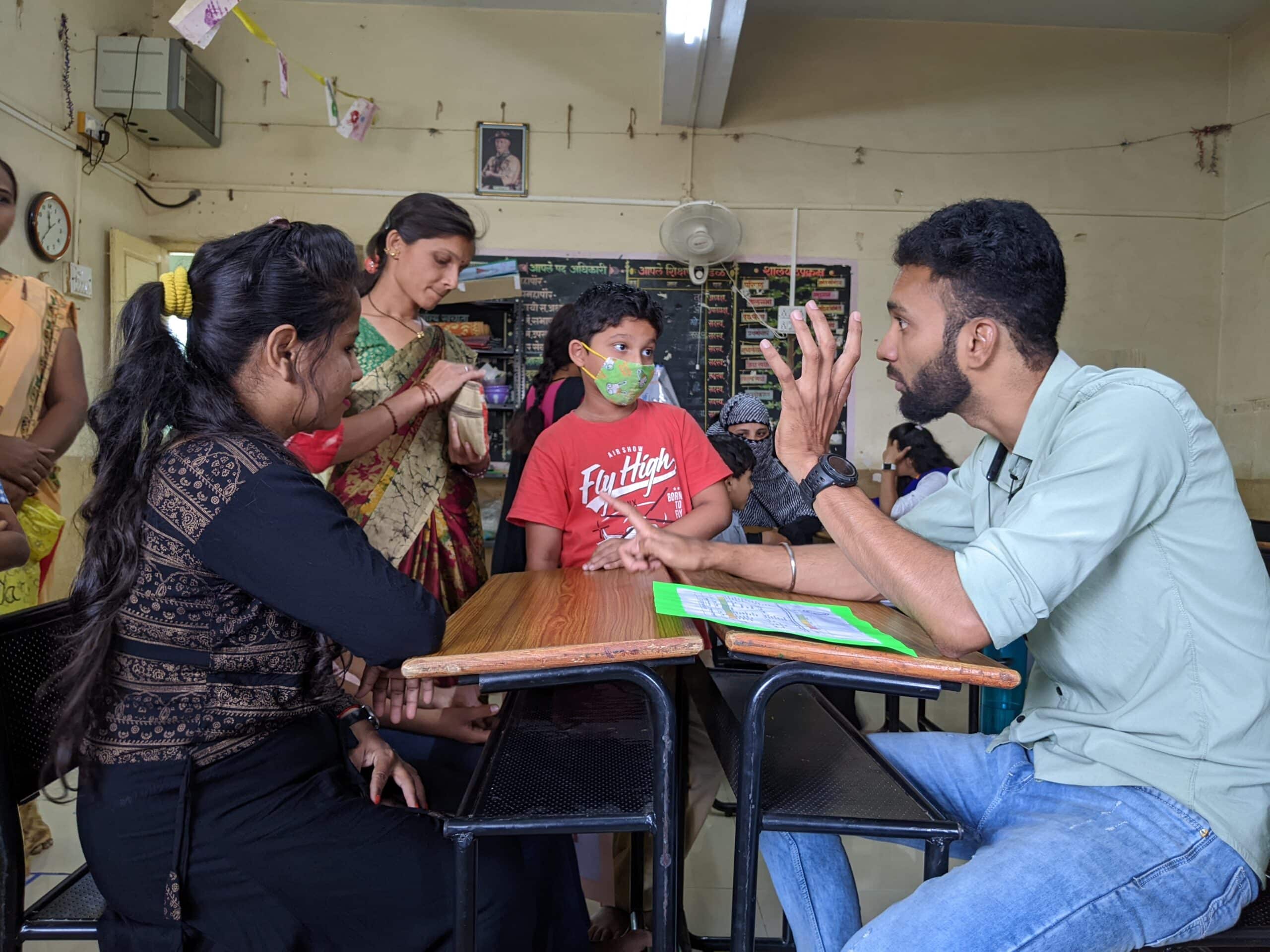
Want to be the first to hear about our prizes and how to apply? Join the T4 Community and you’ll get all the info you need alongside a wealth of resources and professional development opportunities.
T4 Education
Empowering teachers and schools
Join our community
Join 200,000+ educators and leaders getting peer-to-peer Masterclasses, thought-provoking insights and articles, our monthly newsletter, and more.
Contact the prizes team
Popular topics
Empowering teachers and schools
Copyright © 2025 T4 Education. All rights reserved. Privacy Policy.

